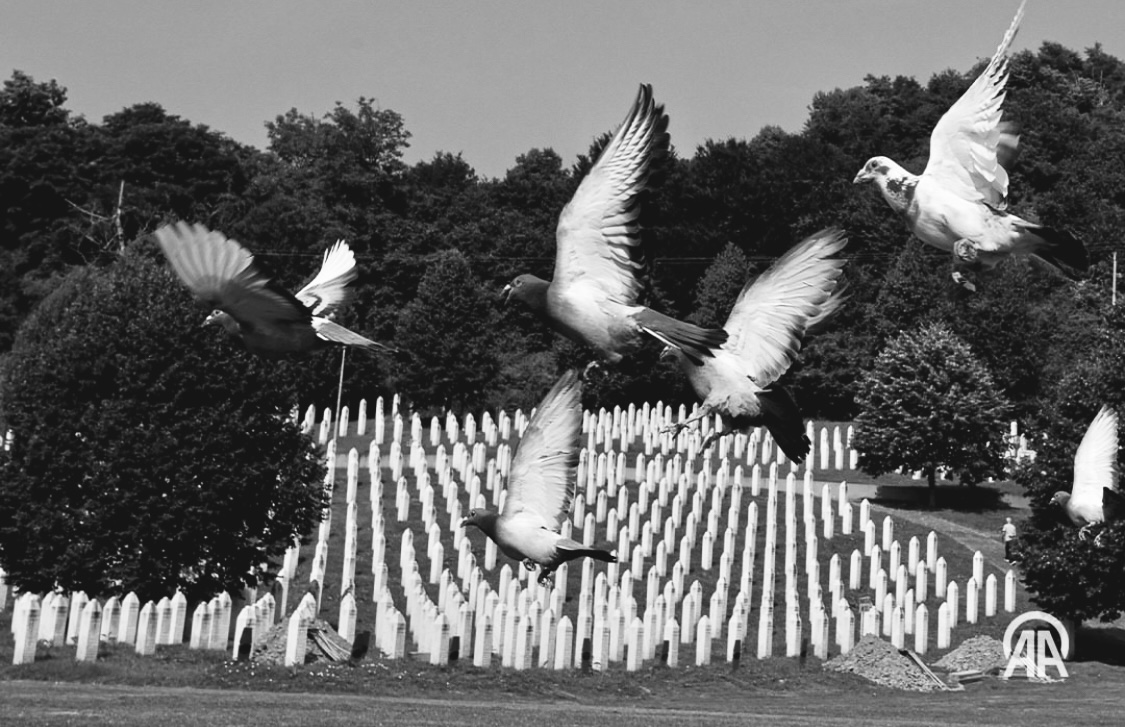
28 years since the genocide in Srebrenica – Montenegro to establish memorial day
11/07/2023
NEW VERDICT AWARDING COMPENSATION FOR DAMAGES DUE TO INEFFECTIVE INVESTIGATION OF THE POLICE TORTURE REPORT FROM OCTOBER 2015
20/07/2023PRESENTATION OF THE HRA REPORT ON THE EXCLUSION OF ILLEGALLY OBTAINED EVIDENCE IN CRIMINAL PROCEEDINGS: The practice of the Court in Strasbourg should not be used to justify violation of domestic procedural rules
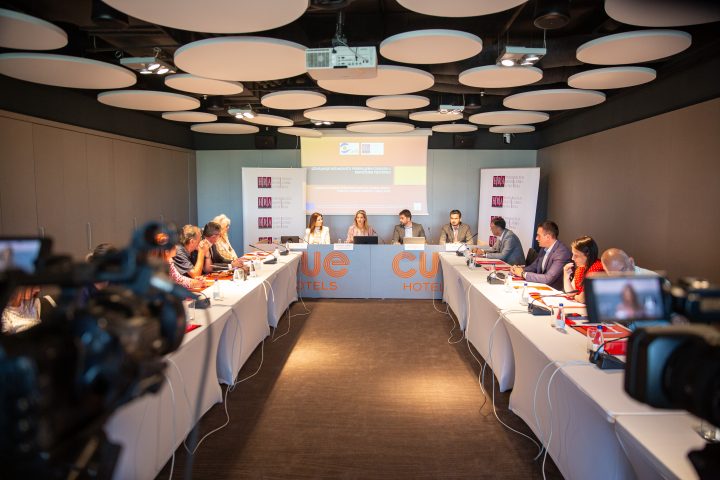
The domestic law prevails because it regulates the details of the exclusion of unlawfully obtained evidence in criminal proceedings, while the European Court of Human Rights (ECtHR) establishes minimum standards and views the fairness of the proceedings as a whole – pointed out the Executive Director of the Human Rights Action (HRA), Tea Gorjanc Prelević.
“The practice of ECtHR should not be used to justify the violation of the Criminal Procedure Code (CPC), although there have been such examples in court practice, where the application of the CPC was avoided by referring to the practice of the court in Strasbourg”.
The report, which HRA presented at a round table, talks about the exclusion of unlawfully obtained evidence in criminal proceedings and analyses the last 10 years’ practice of Montenegrin courts in relation to the positions of the European Court of Human Rights.
As regards the use of evidence obtained from the Sky application, or similar applications, which is currently one of the burning legal issues, the report concludes that their authenticity and reliability should be established, and that for this, as with all other evidence, it is crucial to enable the defence to effectively challenge it:
“It is a good thing that the State Prosecutor’s Office is trying to confirm the authenticity of the evidence obtained from the Sky ECC application by other evidence, because this contributes to the verification of their reliability; however, to make an effective defence possible, defence attorneys should know the relevant data about the operation as part of which the evidence was collected, and they should be provided with access to all the evidence related to the defendant”.
At the round table, special prosecutor Miroslav Turković argued that the above was indeed evidence, while attorney Dragoljub Djukanović was of the opinion that it was actually operational data which was obtained through a “hacker attack”, and that it therefore could not be used as evidence.
“We firmly believe that this is evidence, legally usable evidence, and that a court decision can be based on it”, said Turković.
He clarified that Sky ECC is not the only, or the first, crypto application that was used by criminals, that such applications were used exclusively for illegal activities (as has been established to date), and that the application functions differently compared to other means of communication: “There are thousands of verdicts that have already been issued based on evidence obtained from communication that was made using these applications. In our opinion, the Sky communication is a document, a digital document”.
He added that international legal assistance is based on the principle of mutual trust, specifying that software had been intercepted in France based on a court order and therefore cannot possibly be deemed operational information.
Gorjanc Prelević pointed out that there are still no decisions at the European level about possible violations of the European legal standards. “There are two proceedings pending before the European Court of Human Rights, and it is expected that the European Court of Justice will issue an opinion at the request of the Regional Court in Berlin”.
In Montenegro, we have several confirmed indictments that were based on SKY evidence, the legality of which has not been disputed. However, a decision is expected to be made at the main trial as to whether this evidence is valid.
She said that the important question is whether the defence has sufficient information about the manner in which the evidence was collected, and whether it is reliable and authentic.
Attorneys Andrijana Razić and Dragoljub Djukanović were categorical in their opinion that the Sky communication was not obtained legally, and that it therefore cannot be included as evidence.
Attorney Djukanović pointed out that these were actually unverified and secret data which must be submitted to the defence, and that only then there could be talk about their authenticity.
“Due to the impossibility of controlling these communications, the Appellate Court in Serbia reversed the decision and requested that the method of acquisition [of evidence] be examined.”
He added that, when deciding on detention in one of the first cases that was based on evidence from the Sky ECC application, the investigating judge in Montenegro said that it was operational data, not evidence, and that it was he [the judge] who raised the issue, not the defence.
“We need to see if this is in line with our legislation, I don’t think that it can be considered a document”.
Attorney Veselin Radulović, however, said that the decision of the Appellate Court in Belgrade is not legally binding, that it is a reversal decision, and that nowhere in that decision does it say that the Sky [application] cannot be evidence. “Had they thought it was not evidence, they would have excluded it, but they did not do that; they requested a retrial.”
Radulović said that those applications were used by persons involved in organised crime, and that the main question is why someone had the need to pay dearly for an encrypted telephone and use that type of communication.
“It is neither operational information, nor evidence on which a decision in court proceedings can be exclusively based.”
Radulović does not believe that it was not an unauthorised hacker intrusion into the system, as there was an order from the French court to obtain data, but he also said that the defence must be allowed access to that evidence.
“There was a very strong public interest in publishing these correspondences in the media, since all this information was obtained several years ago and there was no reaction from the prosecutor’s office; nevertheless, one should still be careful when publishing information so as not to violate the presumption of innocence”.
Razić, however, claimed that these intrusions into the system were initially not covered by court orders, and that these were issues at a later date.
Attorney Milena Brnović said that the case obviously involves the personal interest of highly powerful individuals (defendants), and that she does not remember that we had this many discussions and attorneys’ protests before – not even when, unfortunately, there were ample reasons for them.
The director of the Directorate for International Judicial Cooperation of the Ministry of Justice, Branimir Janjević, said that he expected a consensus to be reached at the European level, explaining that correspondence from the Sky application was obtained from France using international legal assistance, through the Ministry, and then forwarded to the Special Public Prosecutor’s Office, and that all this was done in accordance with international treaties that are binding on Montenegro, as well as in line with the Law on International Legal Assistance in Criminal Matters.
“Evidence was not excluded at the time of the confirmation of the indictments in Montenegro, meaning that the court showed what it thought about this evidence.”
Janjević said that this is not the first evidence that was obtained through international legal assistance, in accordance with the legal systems of other countries, and that so far there have been no objections.
The report adds that the ECtHR in principle does not believe that the right to a fair trial was violated if evidence used in the criminal proceedings was obtained by violating the right to privacy, as long as the evidence is reliable, if the defence was given the opportunity to challenge them, and if the court took the defence’s arguments into account when deciding and provided a reasonable explanation for its decisions.
“The ECtHR does not necessarily view violations of procedural rules as reason to declare the entire proceeding unfair, unless these violations are such that they call into question the reliability of the evidence and decisively affect the defence attorneys’ ability to provide an effective defence”.
Looking at the examples of proceedings conducted in the Netherlands and before the Supreme Court of Italy, it is disputable whether the defence can effectively challenge the legality, authenticity and reliability of the evidence – which is a basic requirement of fairness – if there is no sufficient information on how the evidence was gathered.
The Dutch courts and the Italian Supreme Court believe that defence attorneys must be given access to this data; for the same reason, information about the police action that led to the acquisition of evidence must be disclosed before the British courts.
On the other hand, in France, the decision not to reveal the data on the operation is justified by the security of the country (they are declared secret), while the authenticity of obtained data is guaranteed by a certificate issued by the national technical body.
Illegal evidence should be excluded in a timely manner
The HRA report explains that the CPC provides for the exclusion of unlawfully obtained evidence at practically any stage of the proceedings. This should make it possible to exclude such evidence in a timely fashion and thus prevent it from remaining in the case at the main trial and influencing the judges who decide on guilt and sanctions. “However, these opportunities are insufficiently used in practice, so it is often only the highest judicial instances – the Supreme Court and the Appellate Court – that request the exclusion of evidence regarding which there could have been no doubt since the very beginning of the proceeding that they were unlawful, and that a court decision could not be based thereon”.
It is added in the report that the indictment control procedure could be more effective in excluding unlawfully obtained evidence in time. “The possibility of changing the members of the first-instance chamber should also be used more often if the second-instance court reverses the verdict because it was based on illegally obtained evidence which, by the very nature of the matter, affects the judge’s impression of the defendant’s culpability”.
“In judicial practice, we have not come across a single example of excluding evidence obtained by ill-treatment, or evidence seriously suspected of having been obtained that way, although there have been several cases in which the defendants made well-supported claims that their statements or the testimony of witnesses were coerced, including other evidence that pointed to it”, said Gorjanc-Prelević. “In some judgments of the Supreme Court and the Basic Court in Podgorica, this is a consequence of the position that ill-treatment must be proven ‘beyond reasonable doubt’, that is, with a very high degree of probability in order for such evidence to be excluded.” This position, however – as pointed out in the HRA report – is not in line with the international standard (the judgment of the ECtHR in the case of Bokhonko v. Georgia) and should be replaced by an approach where, in a situation where there is a suspicion that evidence was obtained in an unlawful way, the court should shed light on the circumstances under which it was done. “If the court fails to do so, or if the doubt is not eliminated, based the principle of in dubio pro reo, that should benefit the defendant”.
Although the courts in the majority of cases do take into account whether the search action was carried out in accordance with the provisions of the CPC, in the case law of the Supreme Court, the Appellate Court and the Higher Court in Podgorica we come across decisions that tolerated irregularities that called into question not only formal legality of the obtained evidence, but potentially also their reliability, since the rules that should eliminate the suspicion that the evidence might have been planted were not respected during the search.
When it comes to secret surveillance measures, the HRA points to the recent problematic positions of the Appellate Court, according to which the investigating judge’s order to implement these measures did not have to be explained if the appropriate proposal of the state prosecutor was. “The legislator prescribed that the order must be issued by a judge, not the state prosecutor, in order to establish a mechanism of control over the work of the police and the state prosecutor in case of serious encroachment on the right to privacy.”
Provisions contained in Article 156 of the CPC on the use of photographs and audiovisual recordings, which do not allow the use of such evidence if they were not made with the consent of the suspect, i.e. the defendant or another person who is filmed together with him/her, are obviously illogical. “If you film someone stealing your car, the footage will not be acceptable as evidence in court, regardless of the fact that a television, for example, can both make and broadcast said footage without any problems”, said Gorjanc-Prelević.
There is a need to change the CPC, as justice cannot be based on wrongdoing
It was concluded at the round table that there was a need to thoroughly amend the CPC in many aspects, starting with the above mentioned Article 156. The expectation was expressed that an appropriate public debate will be organised once the opinion of the EC on the Draft Law on Amendments to the CPC is obtained.
The state prosecutor at the Higher State Prosecutor’s Office in Podgorica, Ana Radović, said that no criminal conviction can be based on the violation of rights: “Justice cannot be based on wrongdoing”.
Radović added that we must make sure that there is no violation of Article 6 of the Convention, because that could result in repeated proceedings, which are painful for any system.
Case law is uneven when it comes to searches, added the prosecutor, stating that it was also absurd not to be able to use footage without the permission of the person that was being filmed.
Attorney Dalibor Tomović pointed out that case law should be clarified as to when certain evidence is valid and when it is not.
“I worked on several cases that ended in different court decisions.” He agreed with the prosecutor that the CPC must be changed regarding the footage of events.
Attorney Razić pointed out that the practice (happening in many cases) where the defence has to fight from the very beginning of the proceedings to be disclosed the case file documents available to the prosecutor, is unlawful.
“There is only silence upon the requests of defence attorneys for the disclosure of case file documents, they should at least explain these decisions, but no, they completely ignore the request in the majority of cases until the indictment comes to the court, we cannot get evidence, which is completely unfair, people spend a year in custody without knowing what they are being charged with”. xx
Prosecutor Radović, who is also the president of the Prosecutorial Council’s Complaints Commission, suggested that, in the case of silence of the prosecutors, attorneys should complain to the Prosecutorial Council about their unlawful work.
Armin Selmanović, prosecutor with the Higher State Prosecutor’s Office in Podgorica, reminded that, in the past, indictments used to be brought based on criminal reports alone, without even thinking about the evidence, and that the current situation is definitely better.
Radović also pointed out that it was unbelievable how they worked on the changes to the CPC; namely, they were given a short deadline to provide comments in August of last year, during the annual vacation season. They made an effort to submit them, but none were accepted. She believes that the amendment process is not transparent.
Different rules, yet everyone is adhering to the principles of the Court in Strasbourg
The report points out that European countries approach the rules on evidence and on the exclusion of evidence in different ways – for example, most European Union member states have rules on the exclusion of unlawfully obtained evidence. However, in some countries these are highly detailed (Croatia), while in others they are reduced to only a few provisions (Lithuania) or there are almost none at all (e.g. Sweden, which has an extremely broad principle of “free assessment of evidence” that gives judges great freedom in deciding whether to use even evidence that was obtained illegally). In the absence of common rules on evidence, the only principles that apply for all European countries, and on which the national courts rely, are those from the case law of the European Court of Human Rights. According to the case law of the European Court, evidence whose use always makes the proceedings unfair are those that have been obtained in violation of Article 3 of the Convention, which prohibits torture and inhuman or degrading treatment or punishment, as well as those that have been obtained using an agent provocateur, i.e. a person who incites someone to commit a criminal act.
When the application of a specific norm of national law would lead to a violation of international law, the international law prevails. However, when domestic law regulates an issue in greater detail than international law, and sets standards for the protection of human rights at a higher level, then the standards set at the national level should be applied. Of course, the application of rules and principles of international law is logical, and may be necessary when something is not regulated by domestic law.
National laws can have – and often do have, as in the case of Montenegro – higher standards for the protection of the defendant’s rights, so some procedural irregularities that are tolerated by the ECtHR can be considered grounds for reversal of judgments.
The gathering was organised as part of the project “Access to Justice and Human Rights in Montenegro – Trial Monitoring Project 2021-2023”, which the NGO Centre for Monitoring and Research (CeMI) is implementing in cooperation with HRA, with the financial support of the European Union and the Ministry of Public Administration.
- Ana Radović, državna tužiteljka u Višem državnom tužilaštvu u Podgorici (lijevo) i Tea Gorjanc Prelević, izvršna direktorica HRA (desno)
- Ognjen Mitrović, šef Pravnog odjeljenja u NVO Centar za monitoring i istraživanje (CeMI)
- Tea Gorjanc Prelević, izvršna direktorica HRA
- Ana Radović, državna tužiteljka u Višem državnom tužilaštvu u Podgorici
- Ana Raičević, advokatica
- Milena Brnović, advokatica
- Maja Boričić, Centar za istraživačko novinarstvo Crne Gore (CIN CG)
- Milica Bogojević, glavna savjetnica u Instituciji Zašitnika ljudskih prava i sloboda
- Armin Selmanović, tužilac u Višem državnom tužilaštvu u Podgorici; Filip Jovović, advokat; Andrijana Razić, advokatica (s lijeva na desno)
- Budislav Minić, advokat; Miomir Đukić, advokat
- Dalibor Tomović, advokat
- Velija Murić, advokat
- Ana Radović, državna tužiteljka u Višem državnom tužilaštvu u Podgorici
- Marija Vuksanović, Programska kancelarija Savjeta Evrope u Podgorici
- Ana Grgurević, pravna savjetnica u Ambasadi SAD u Podgorici
- Dalibor Tomović, advokat
- Andrijana Razić, advokatica
- Ljiljana Lakić, predsjednica Upravnog odbora Centra za obuku u sudstvu i državnom tužilaštvu
- Armin Selmanović, tužilac u Višem državnom tužilaštvu u Podgorici
- Velija Murić, advokat
- Branimir Janjević, direktor Direktorata za međunarodnu pravosudnu saradnju u Ministarstvu pravde
- Miroslav Turković, specijalni tužilac
- Veselin Radulović, advokat
- Dragoljub Đukanović, advokat


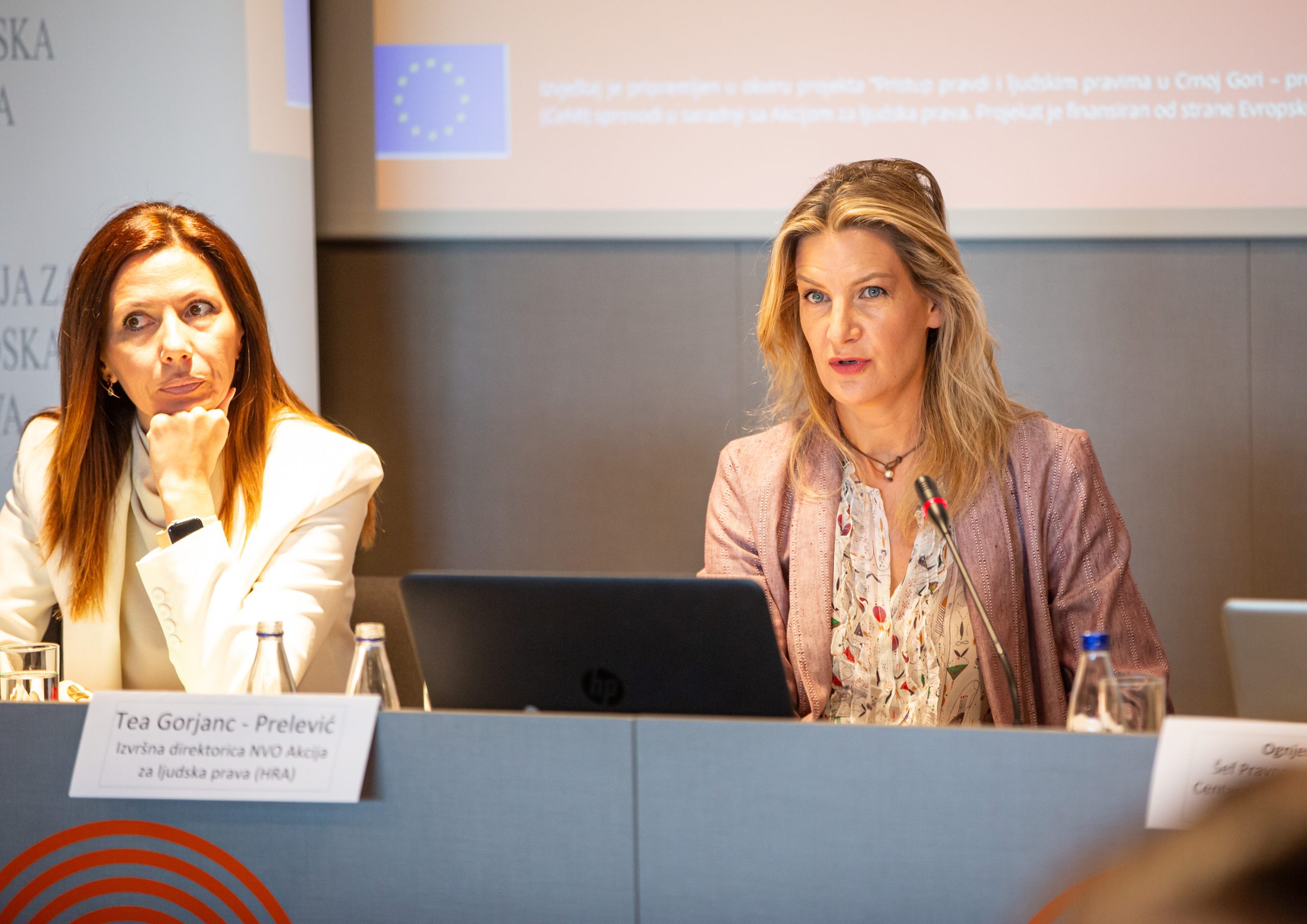
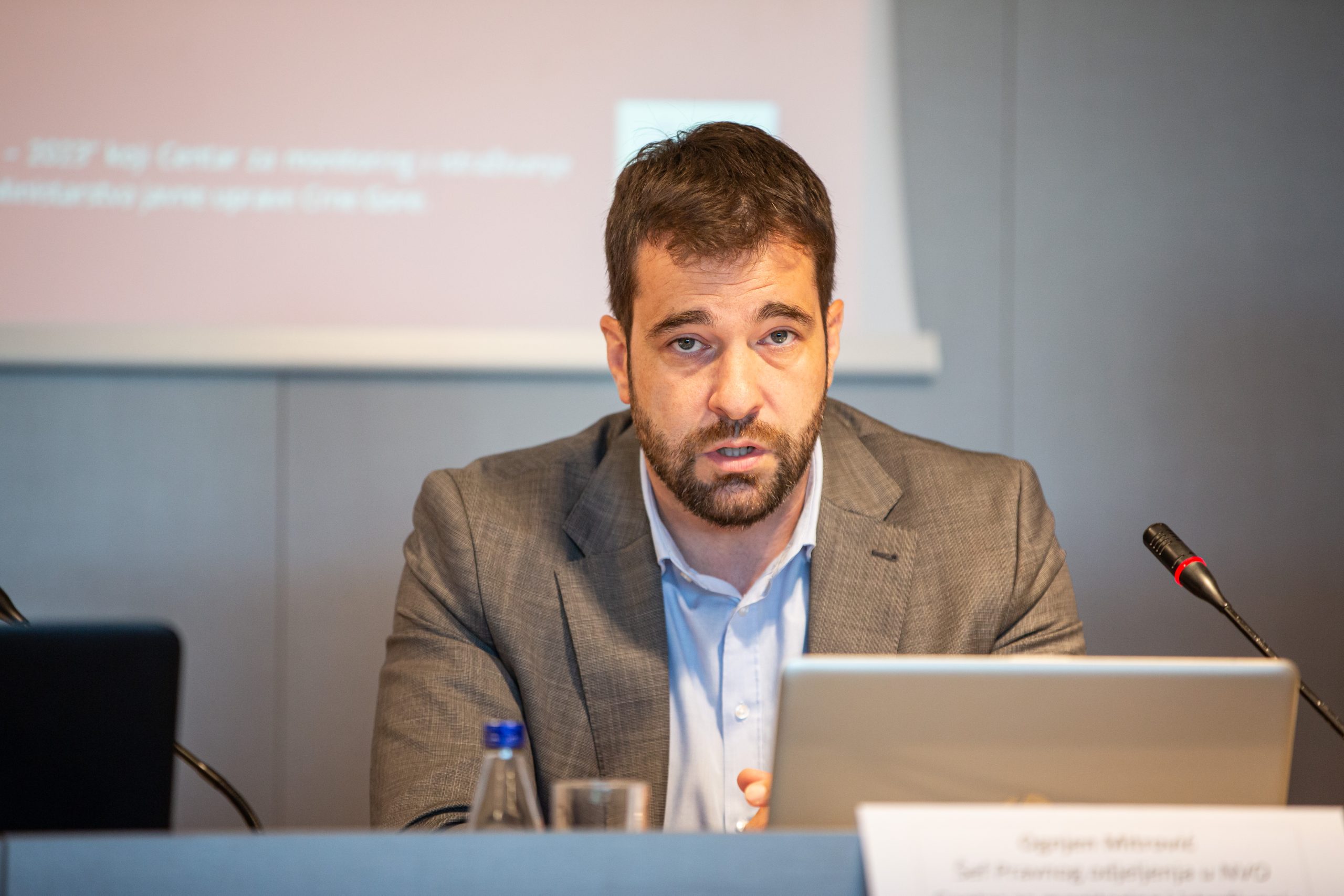
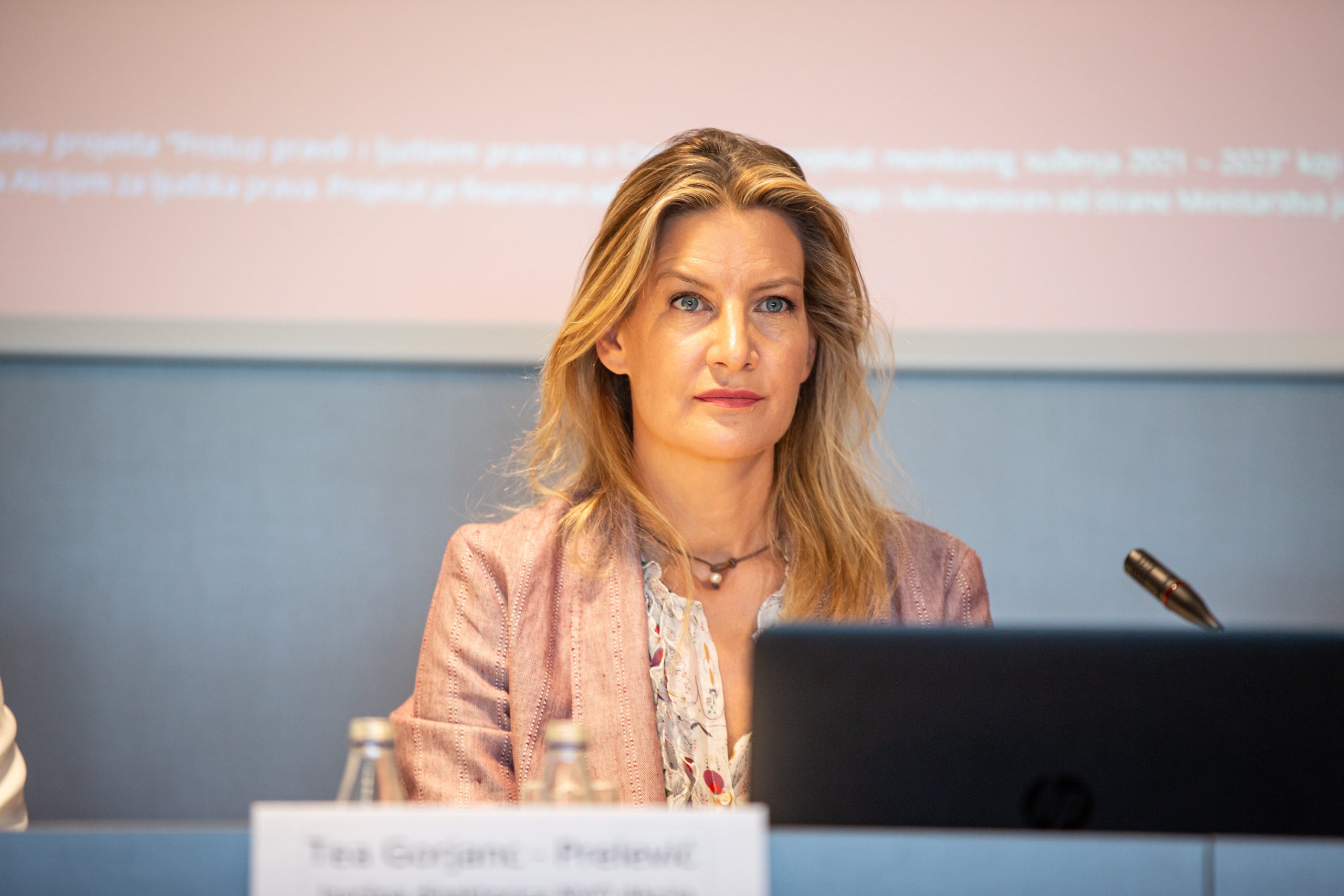
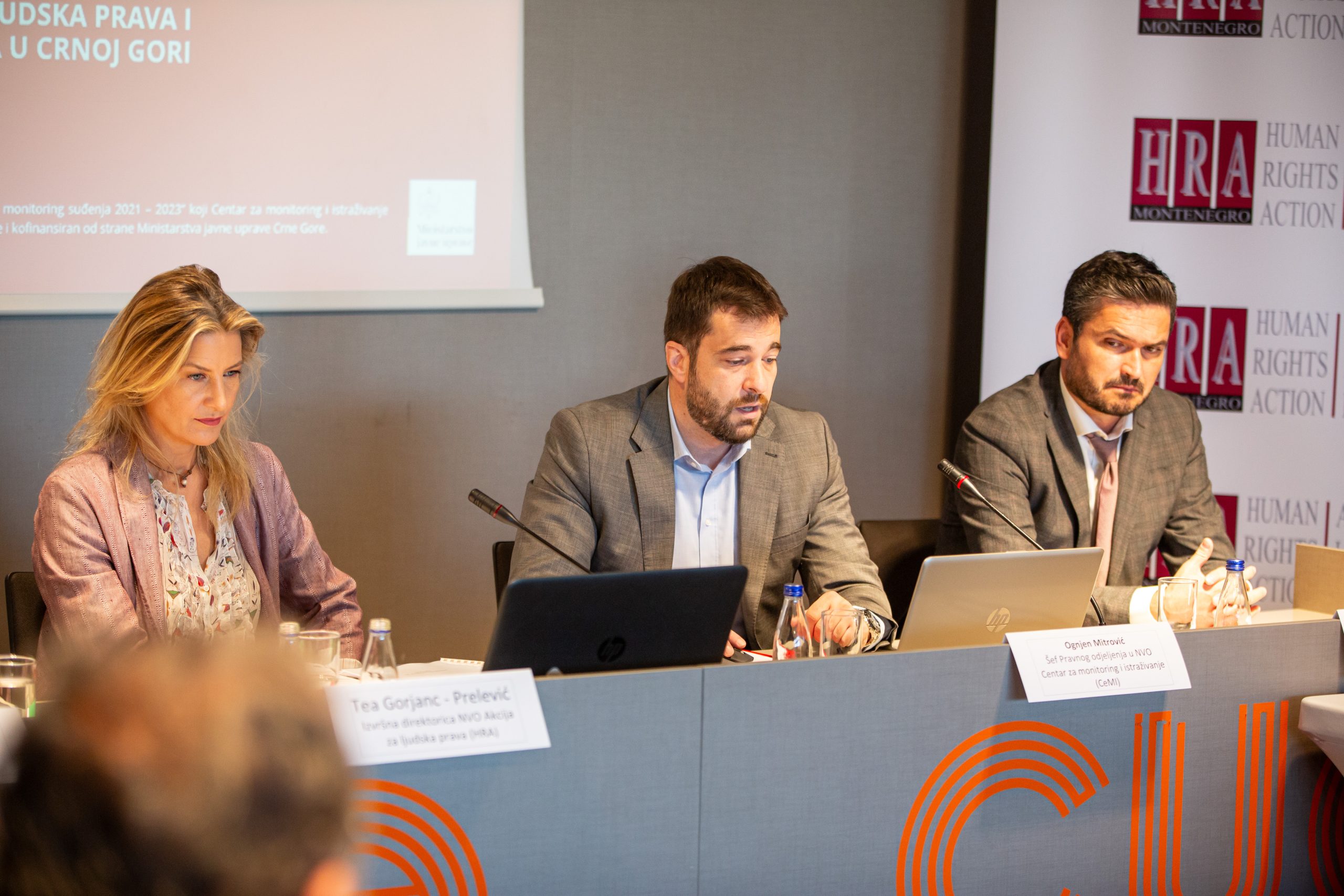
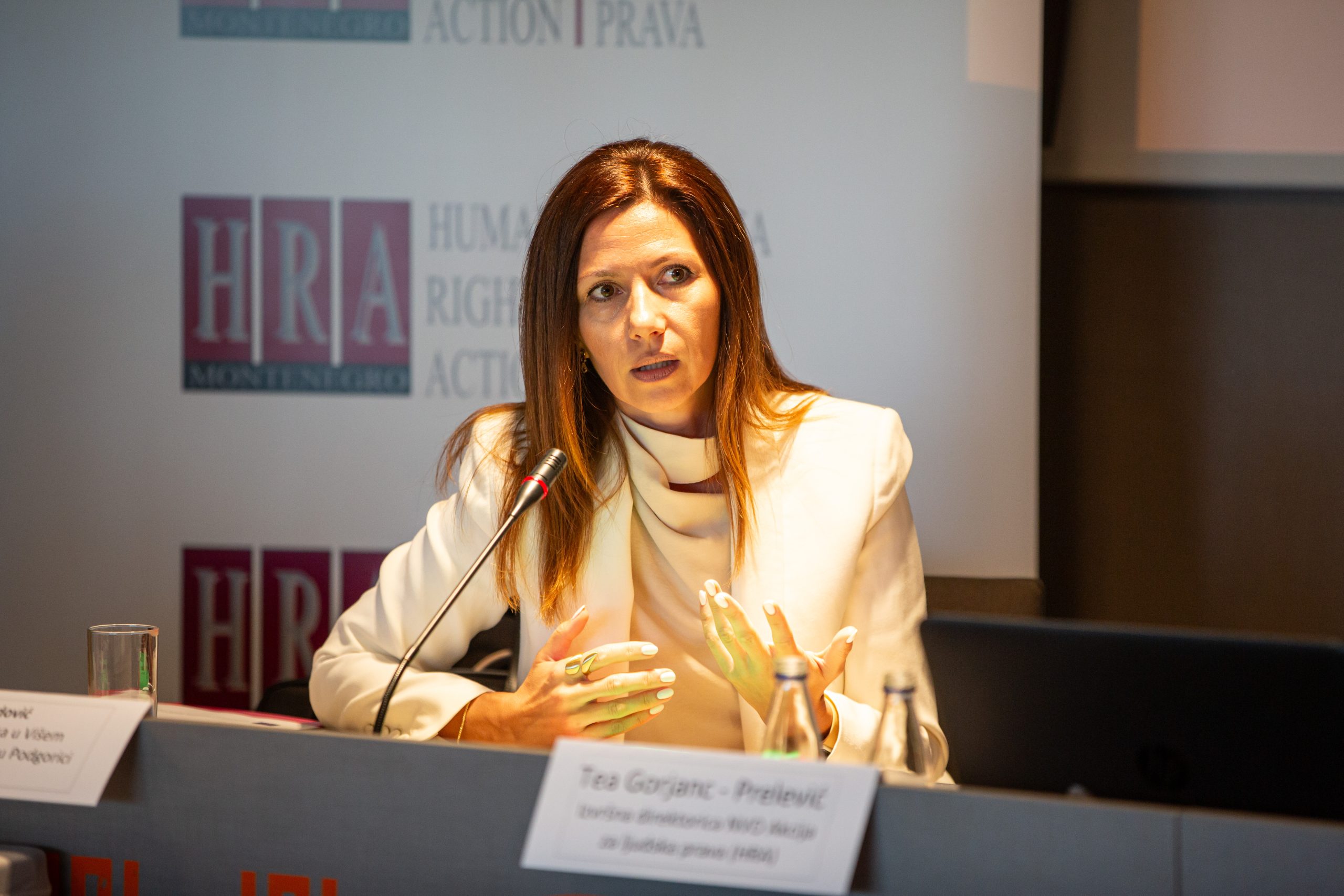
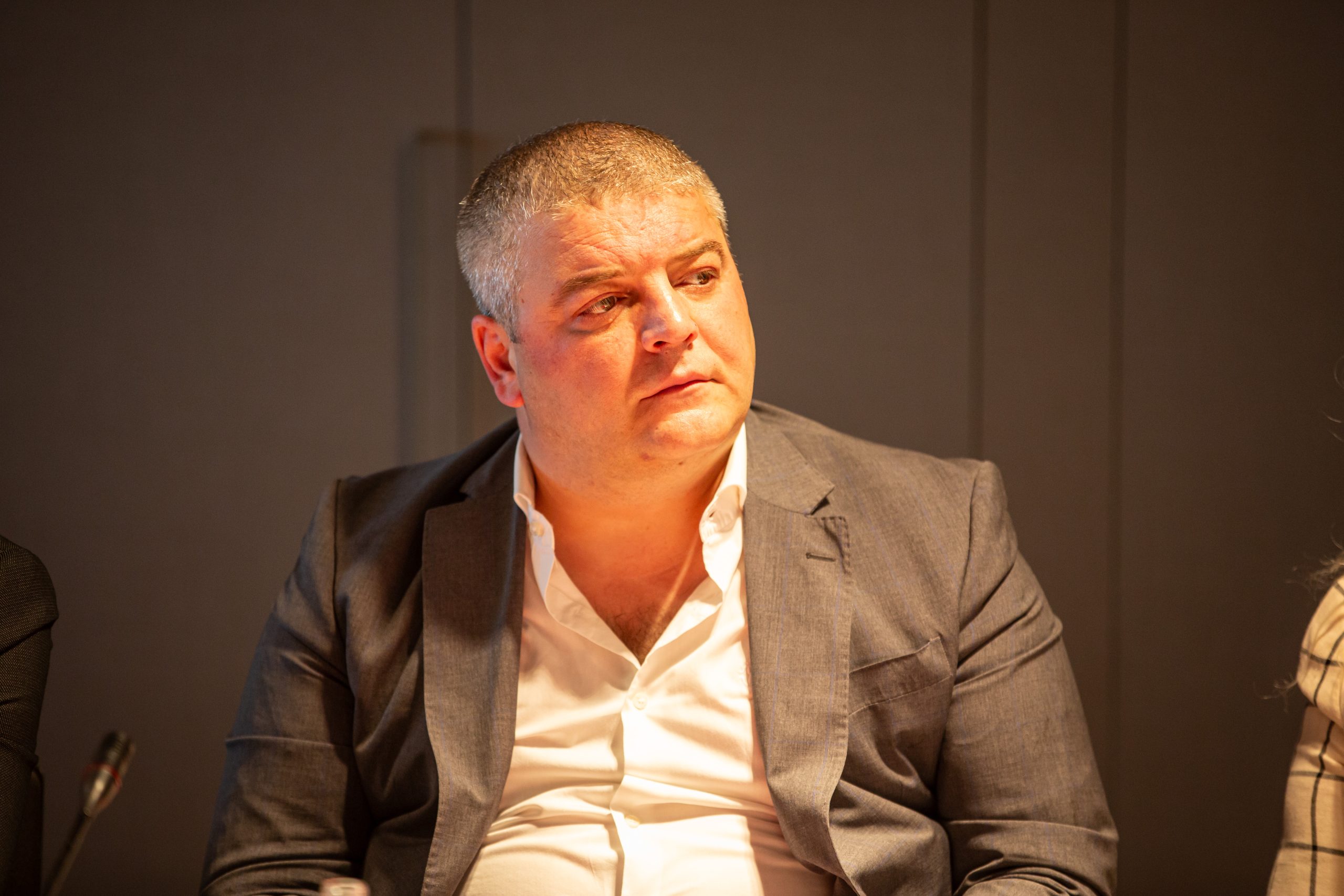
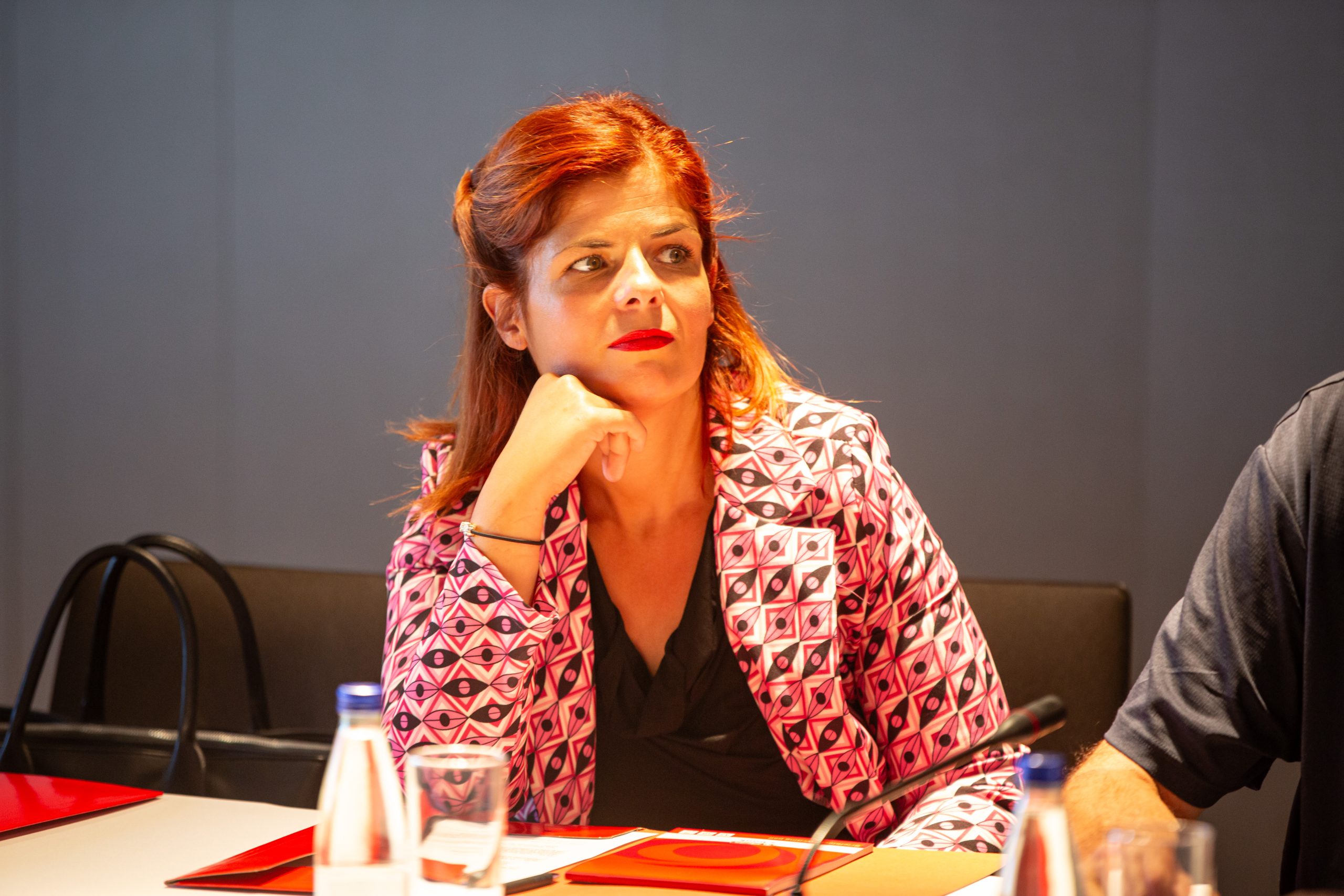
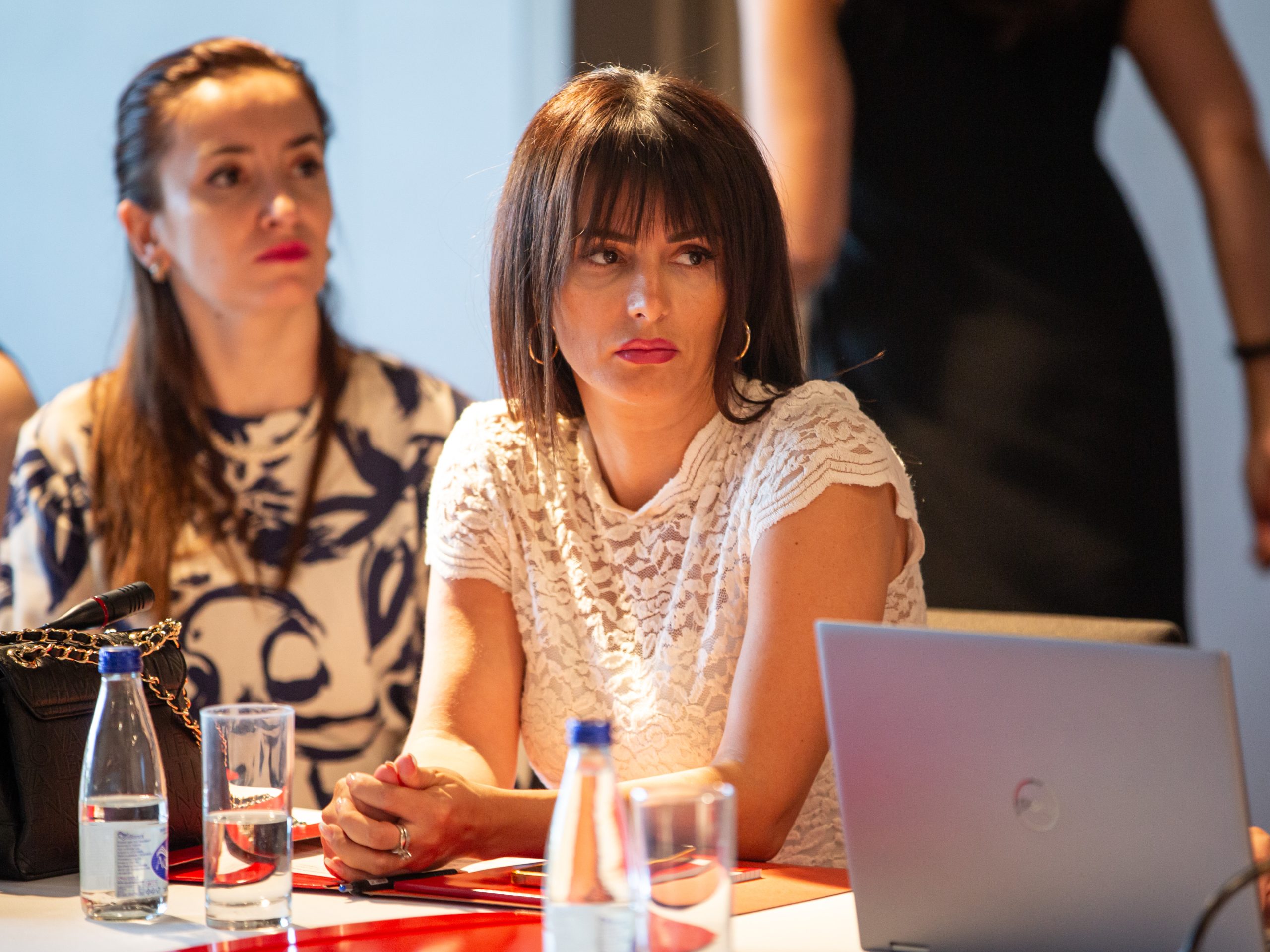
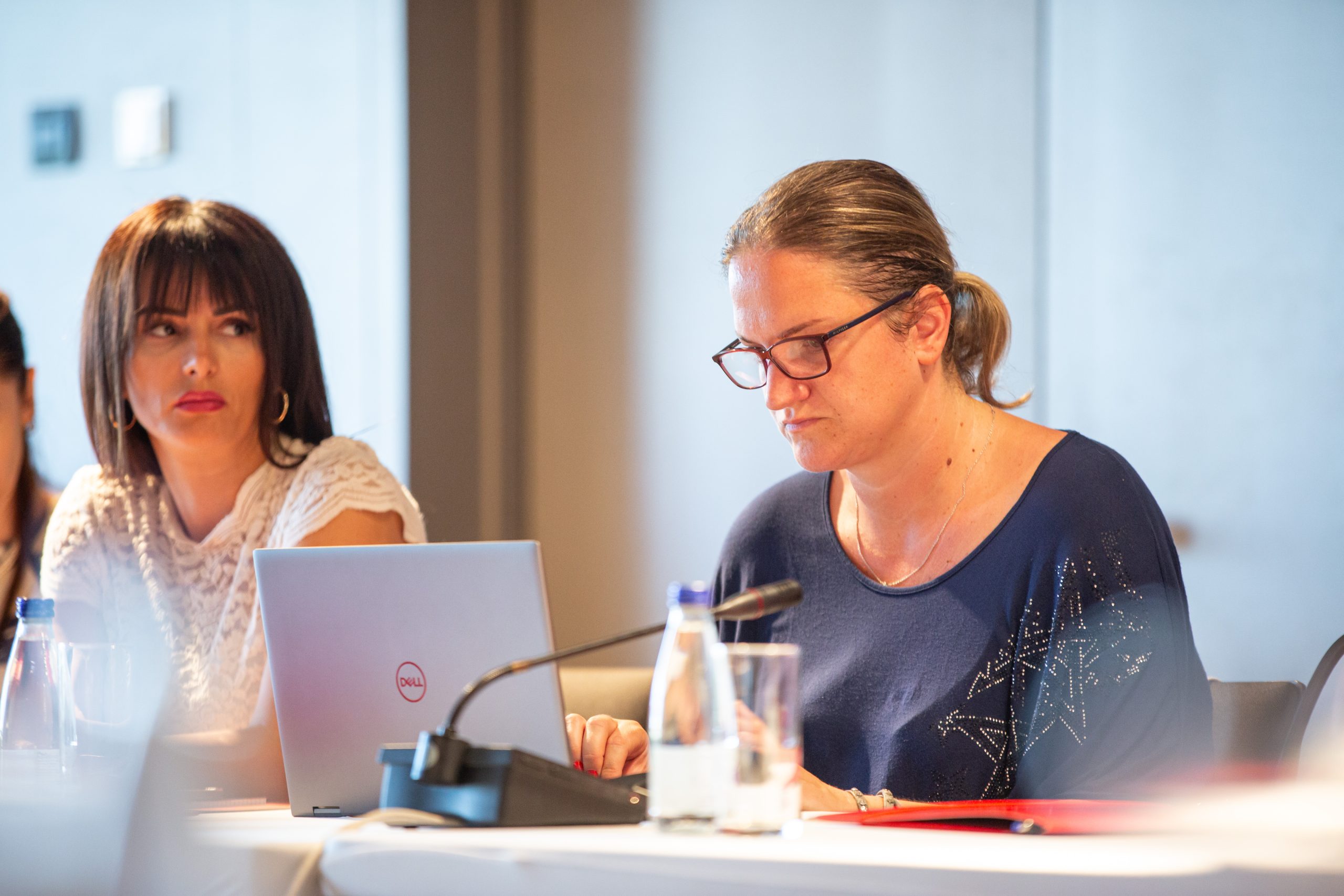
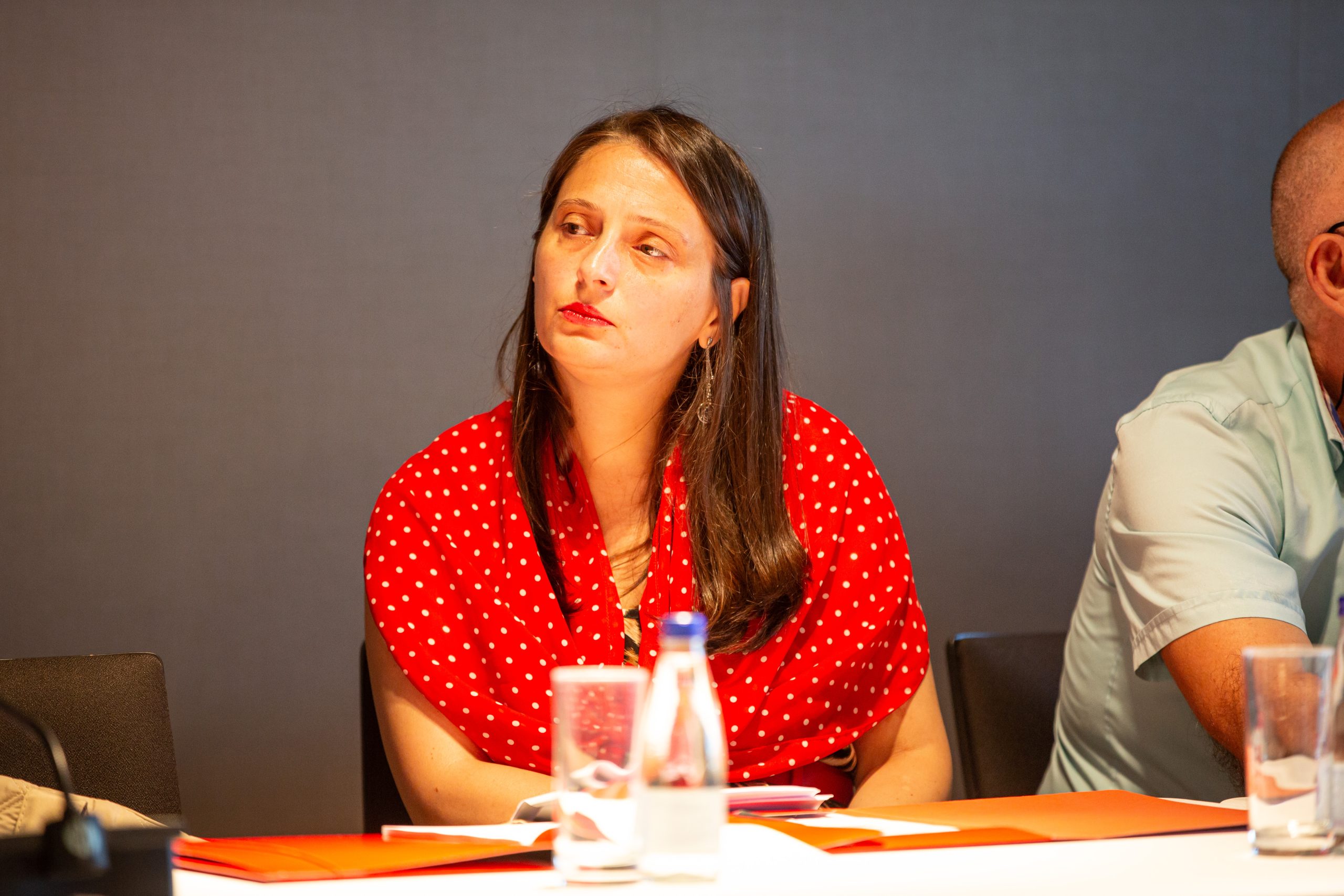
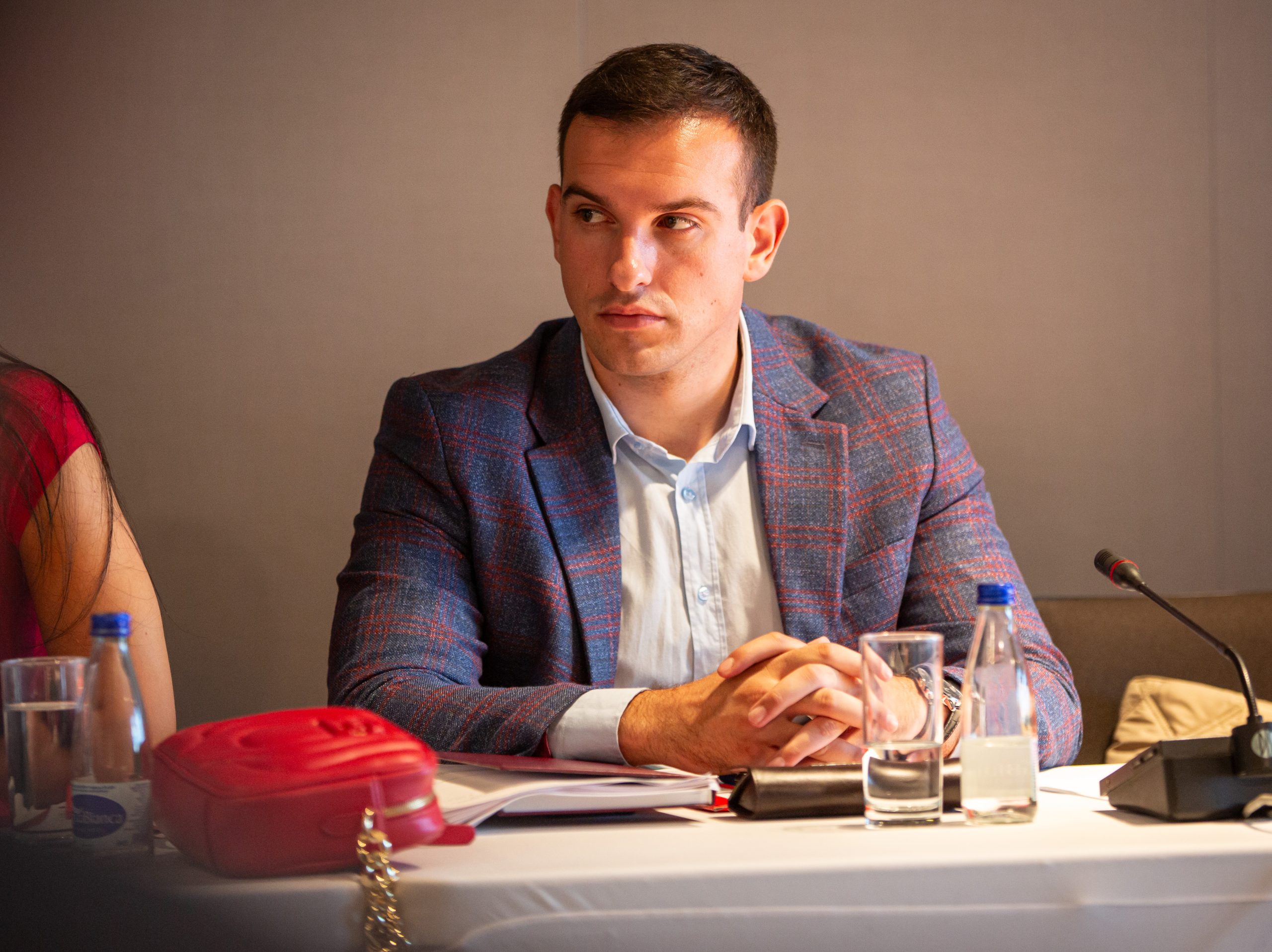
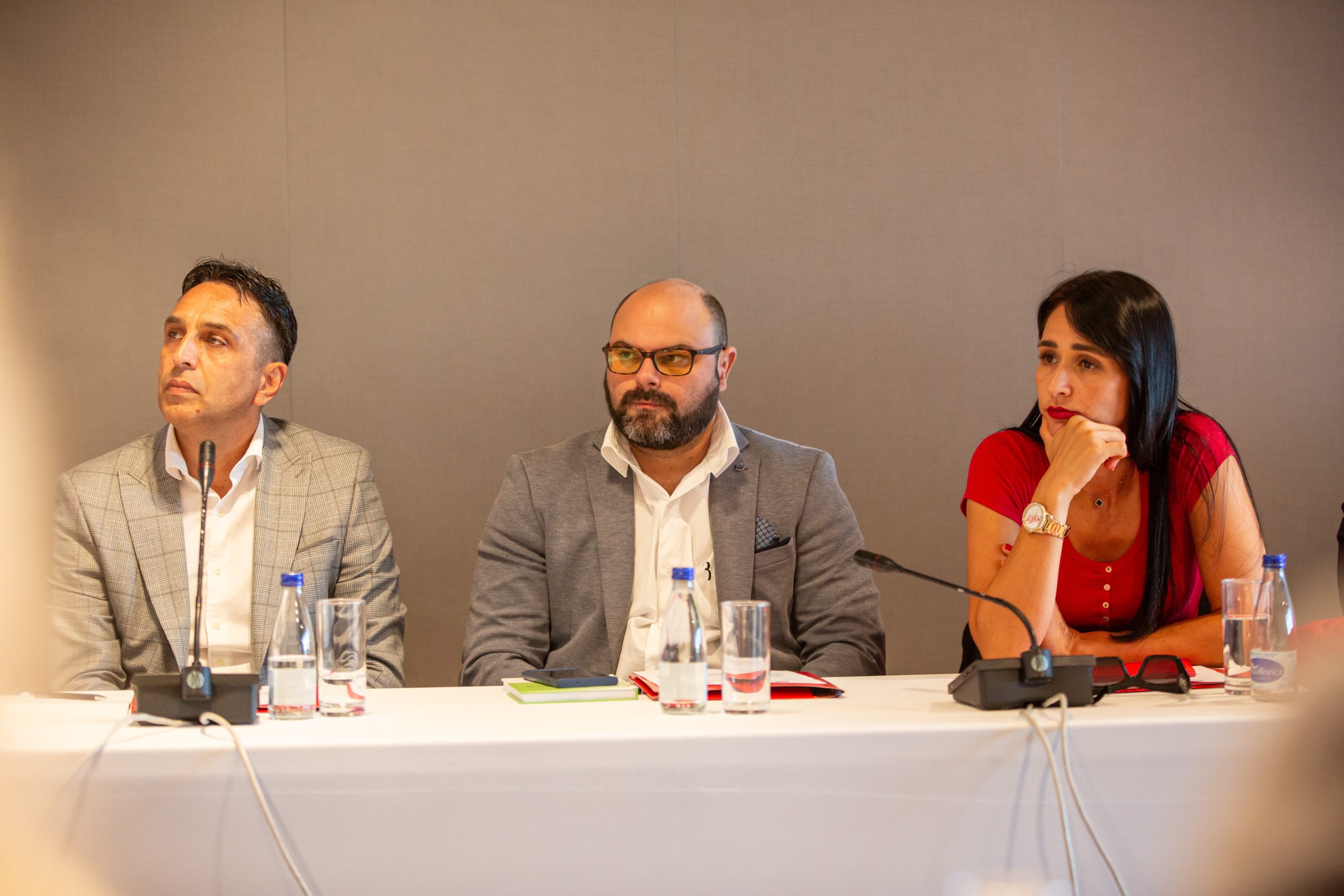
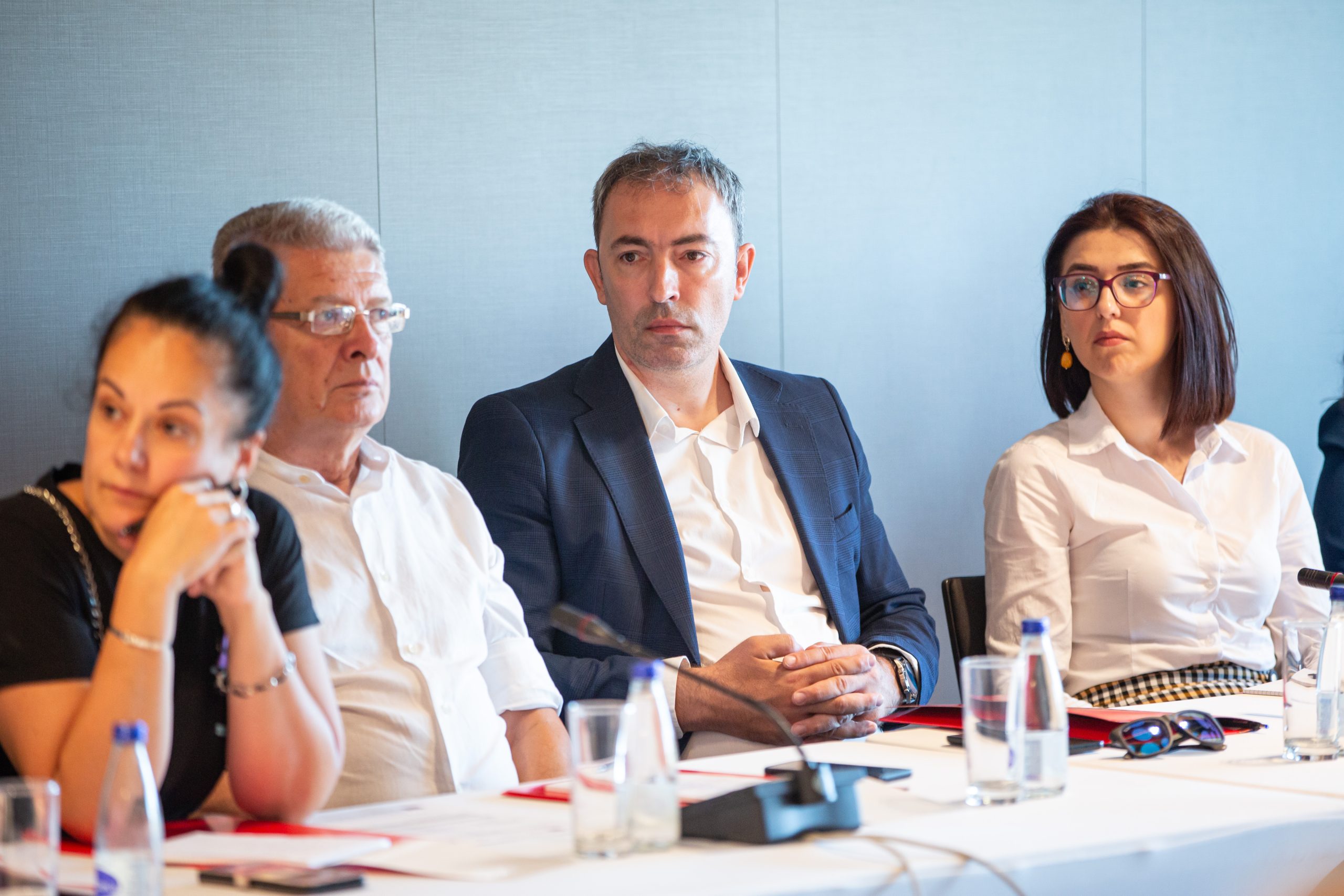
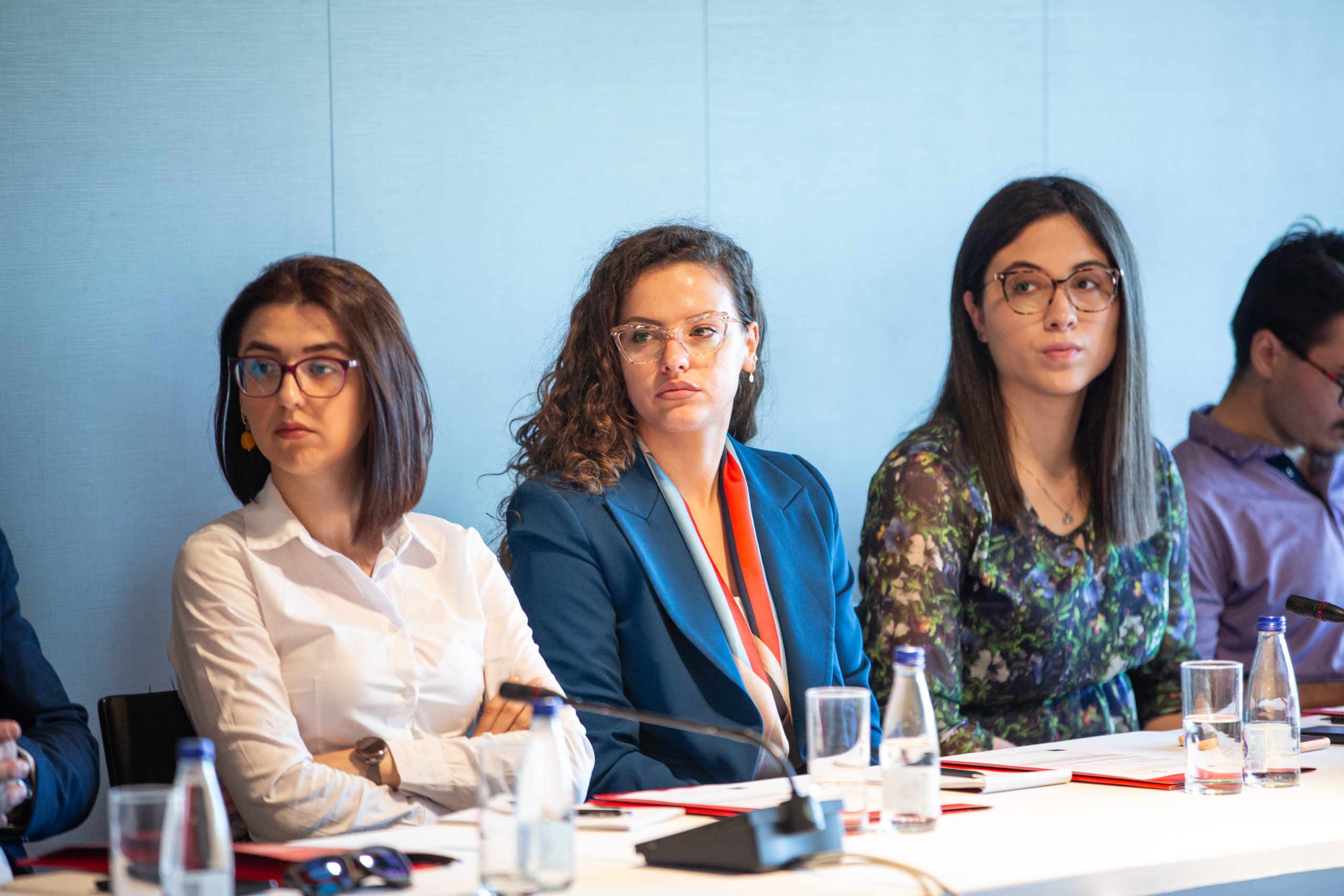
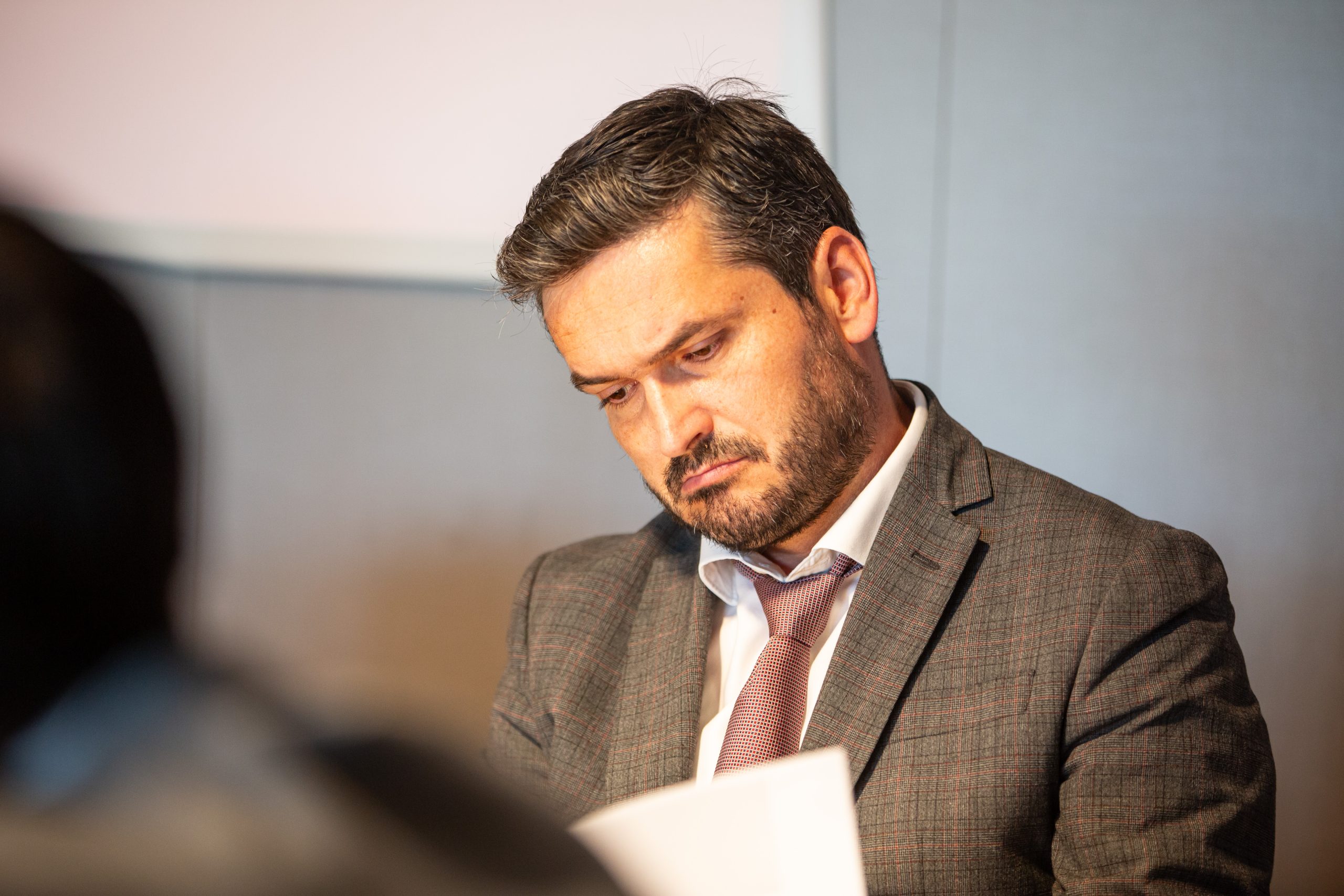
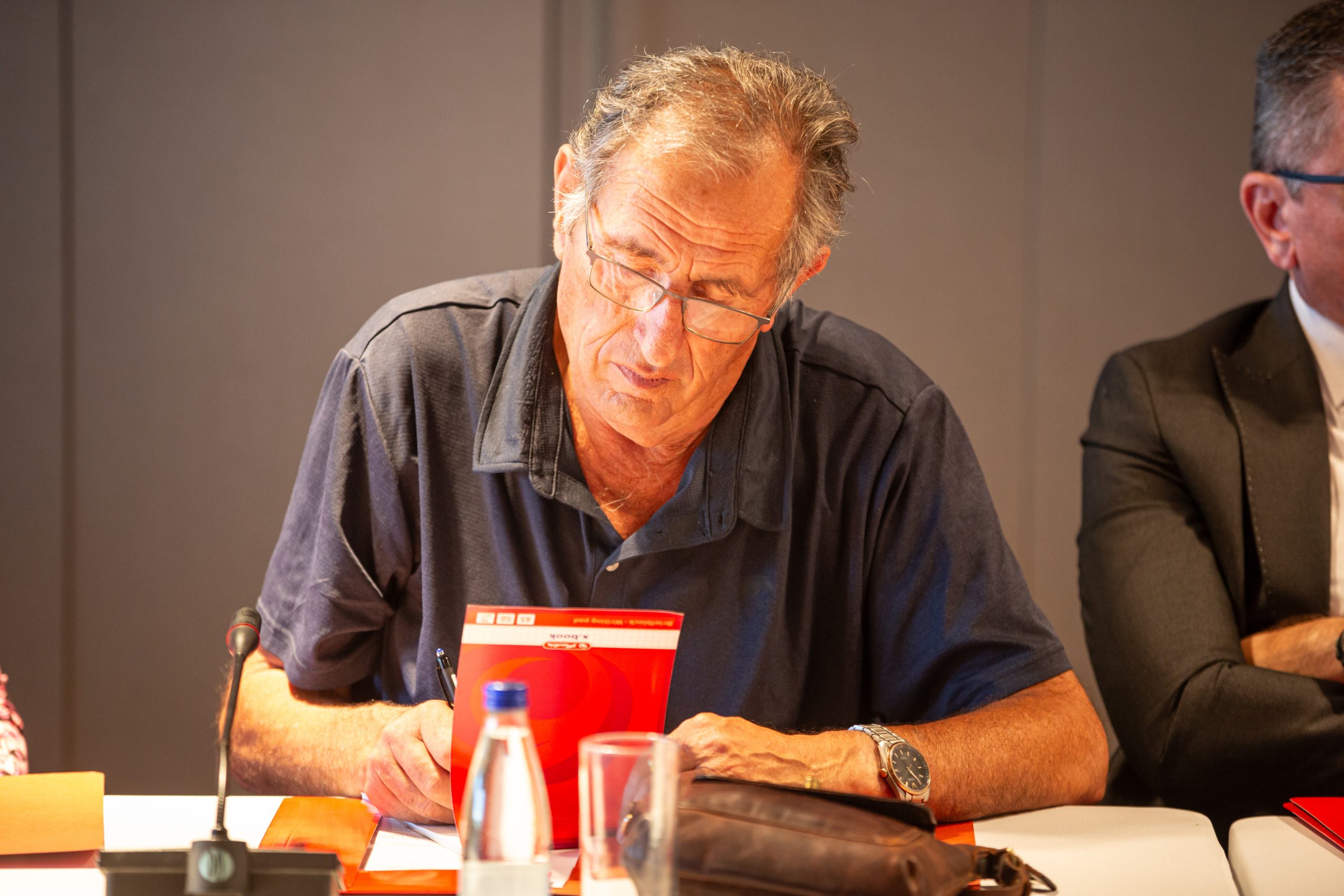
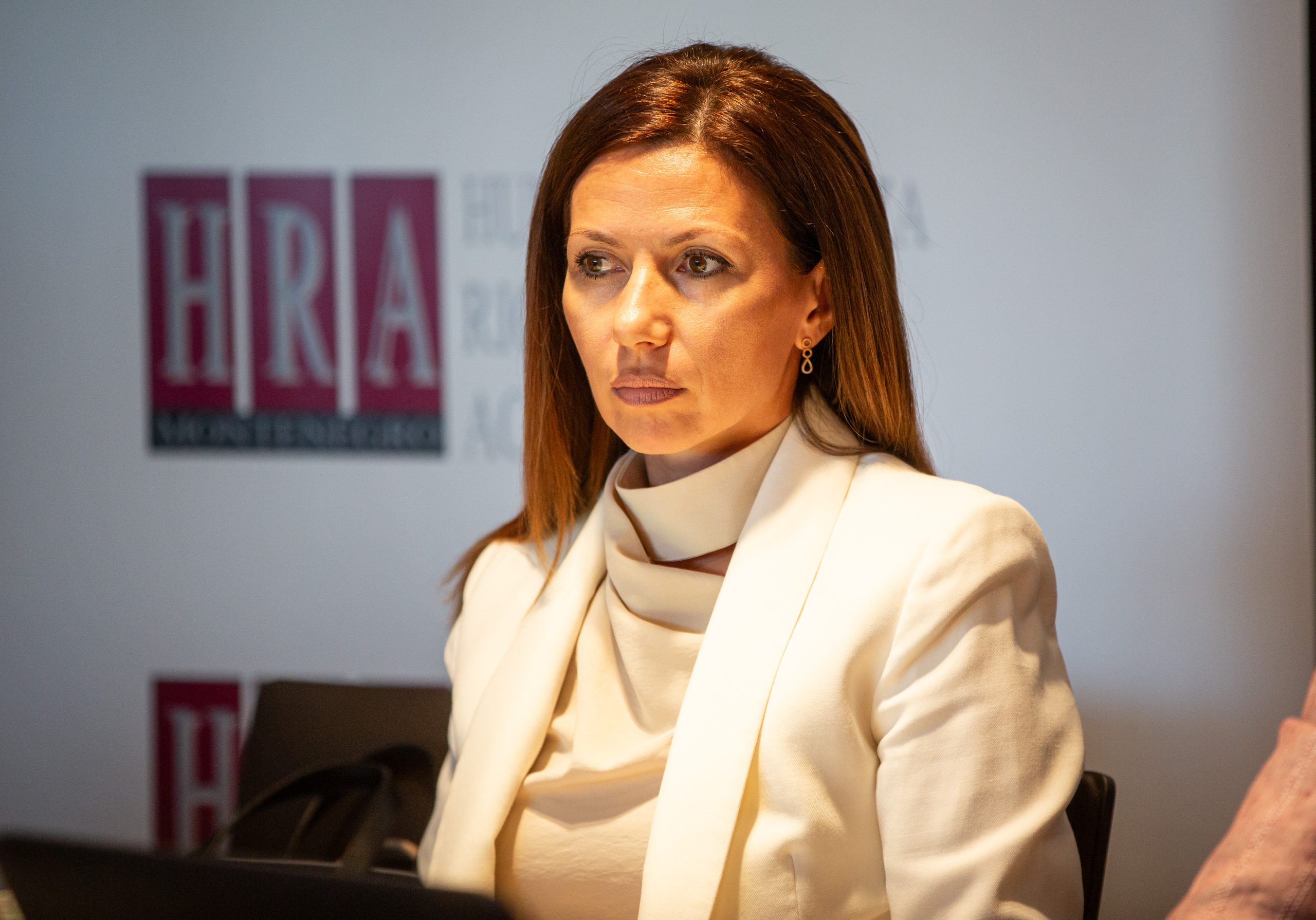
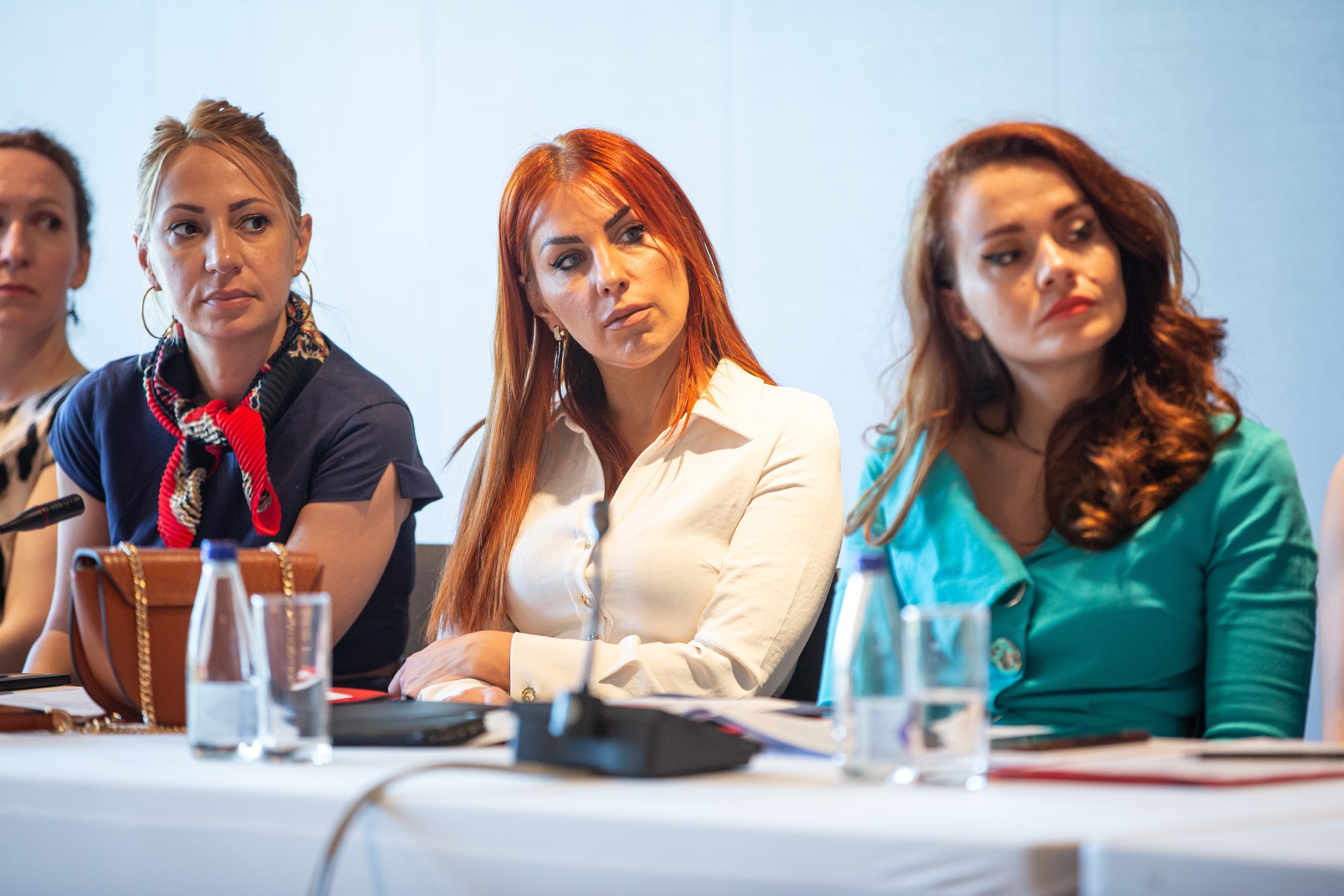
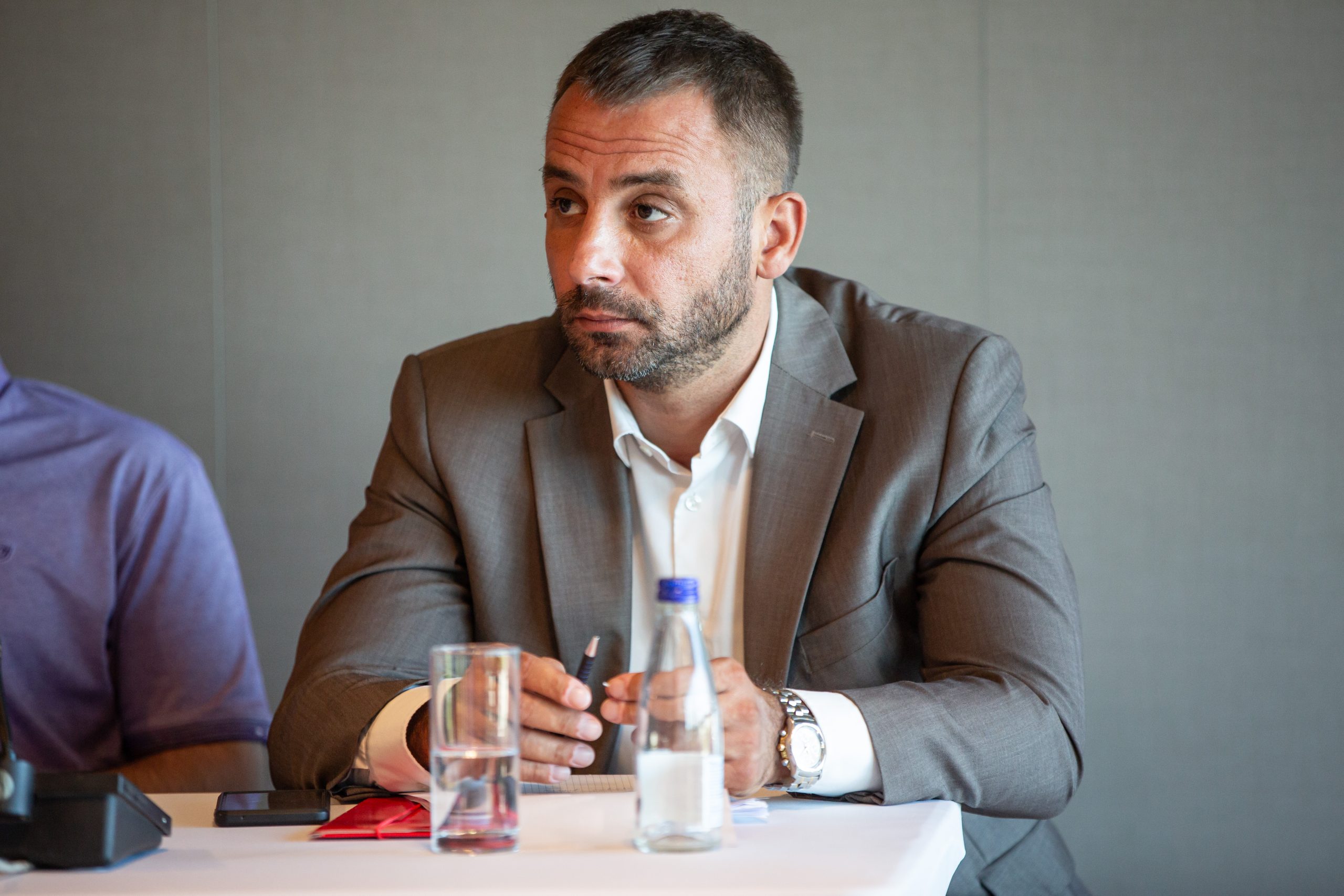
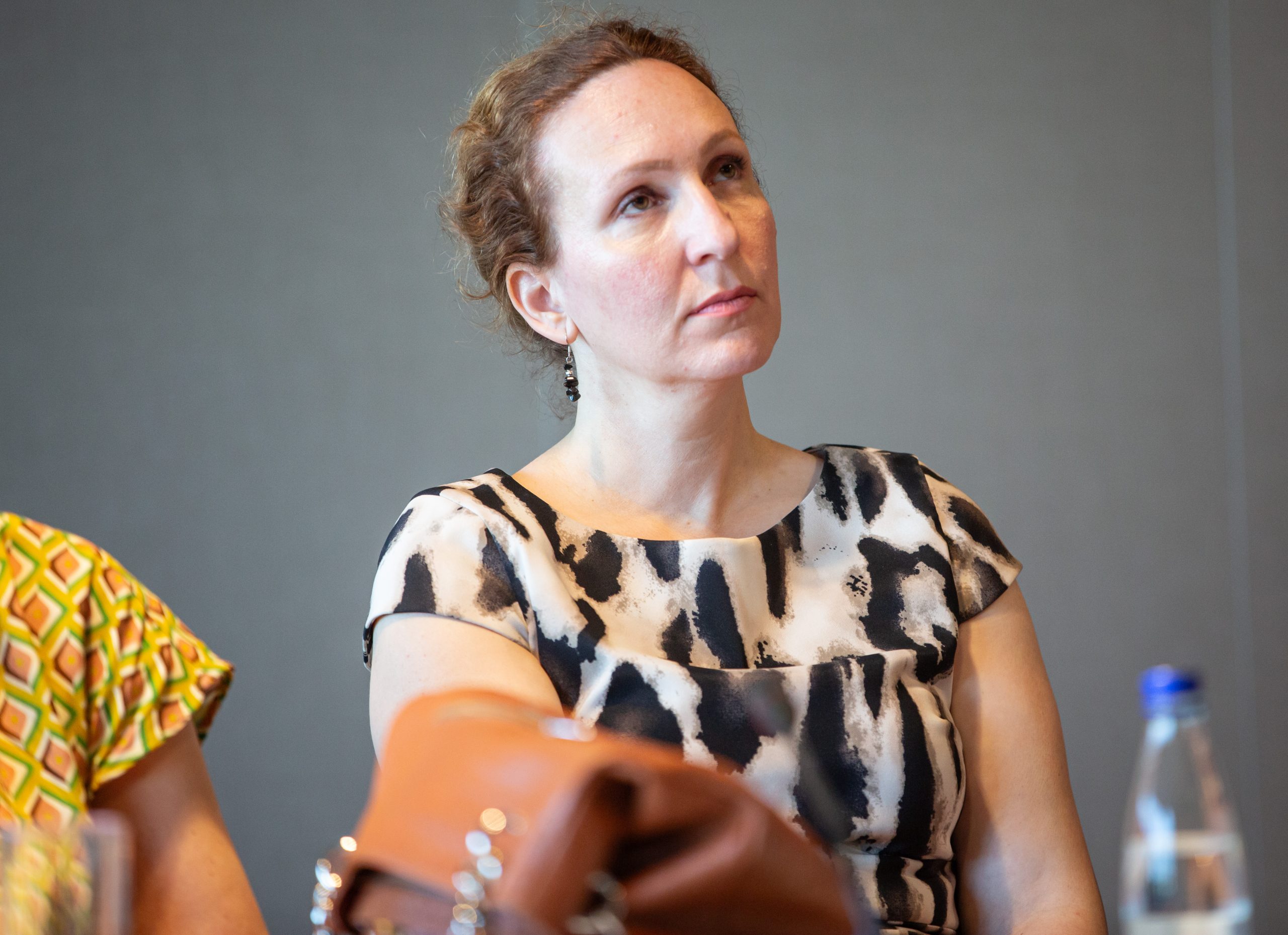
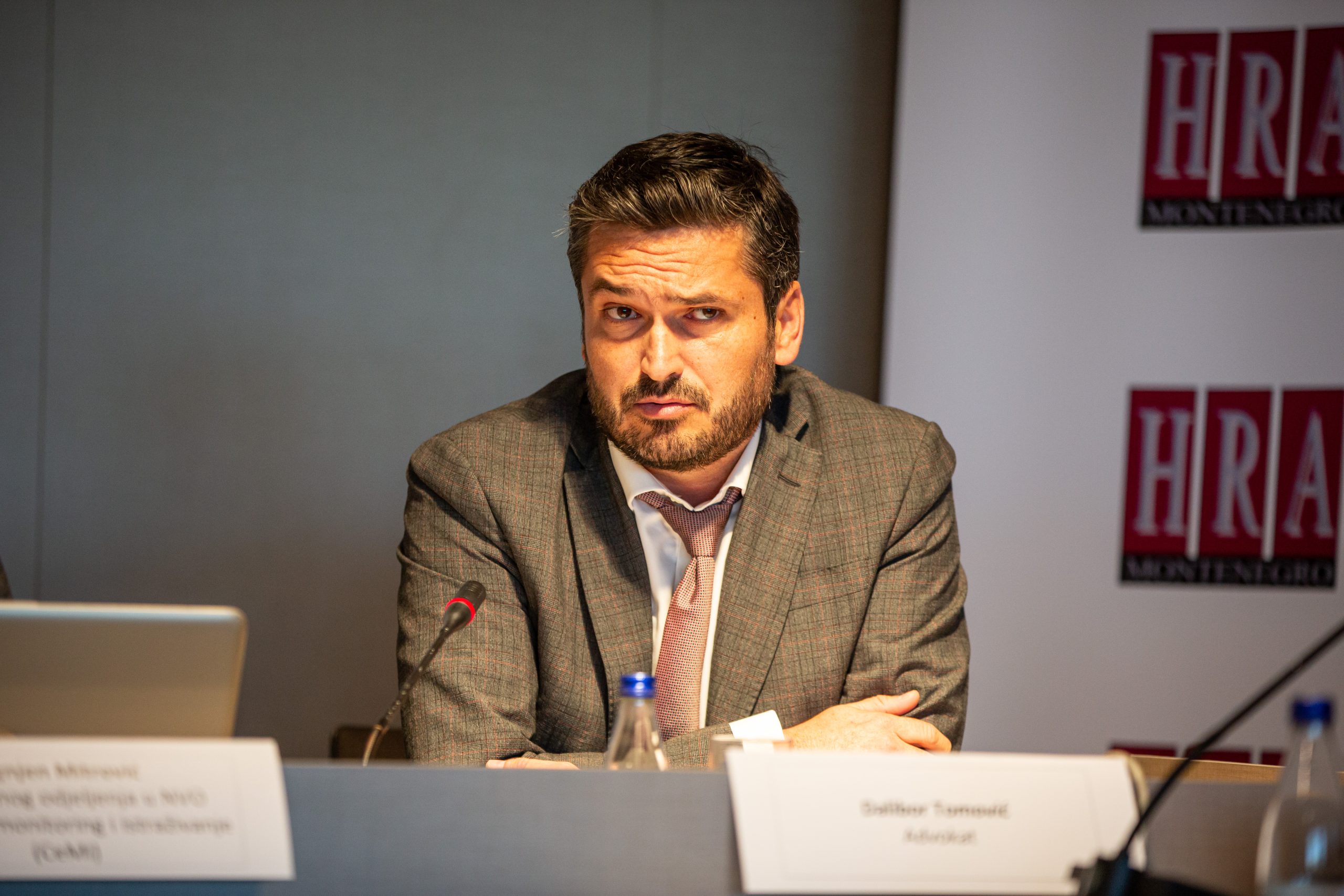
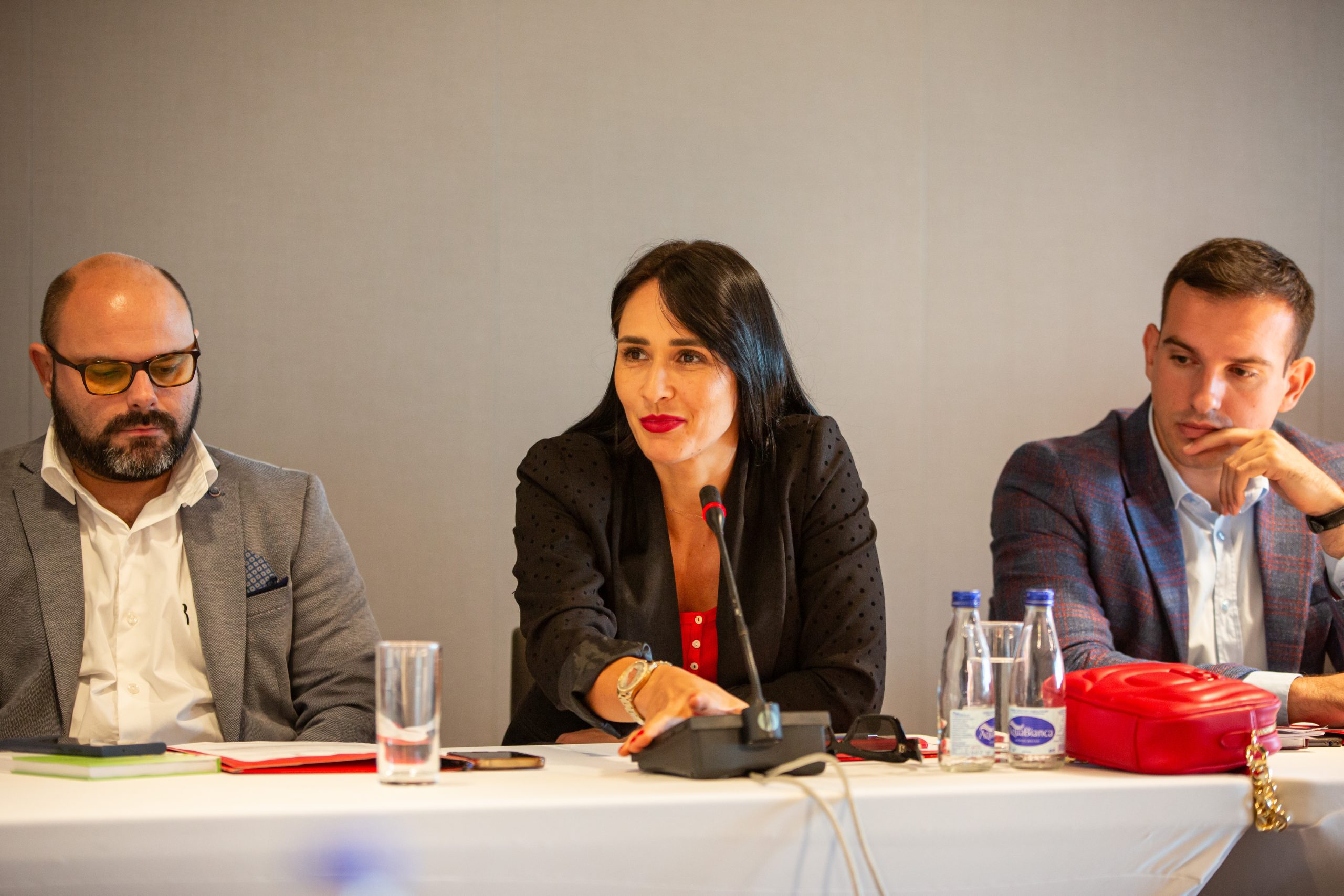
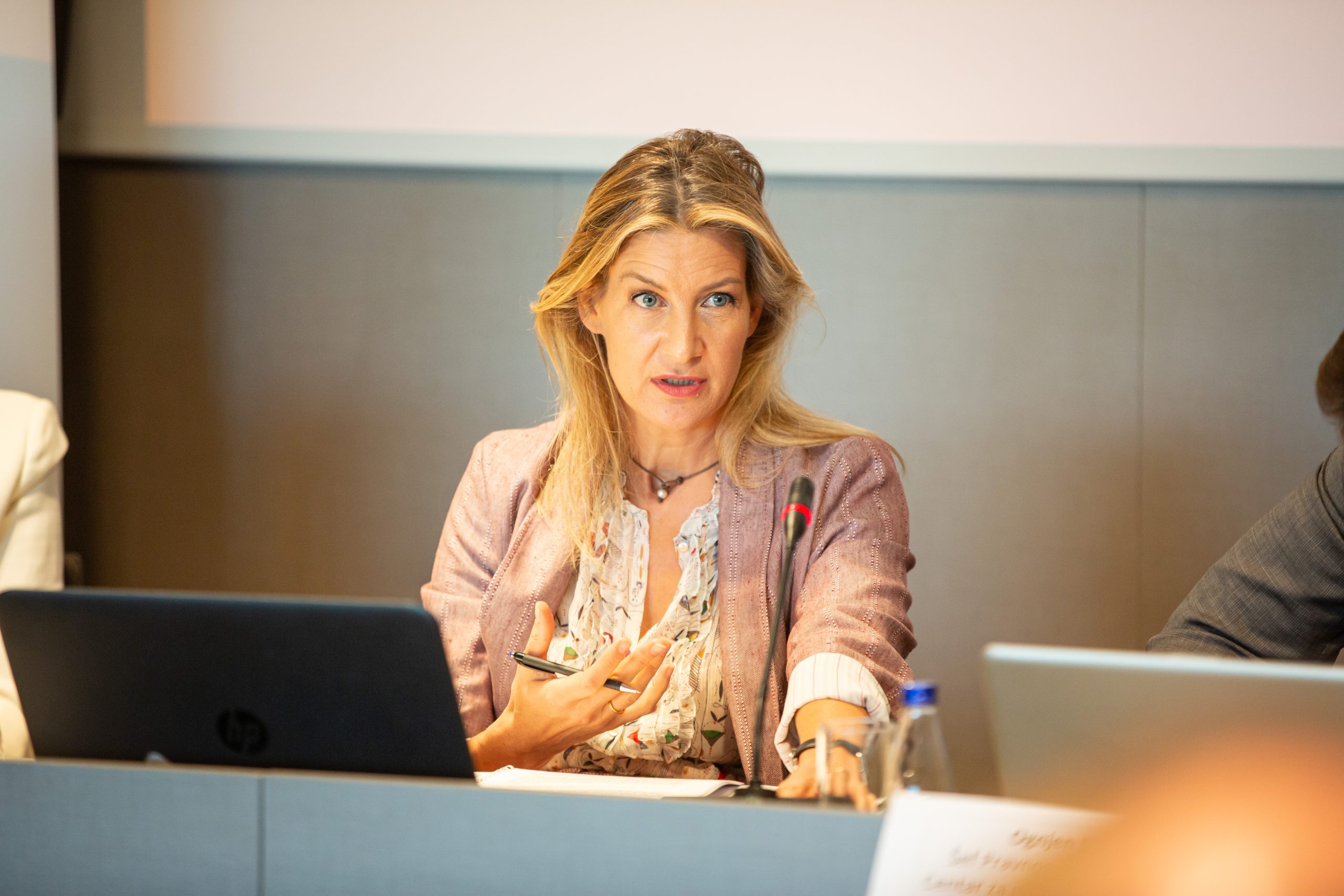
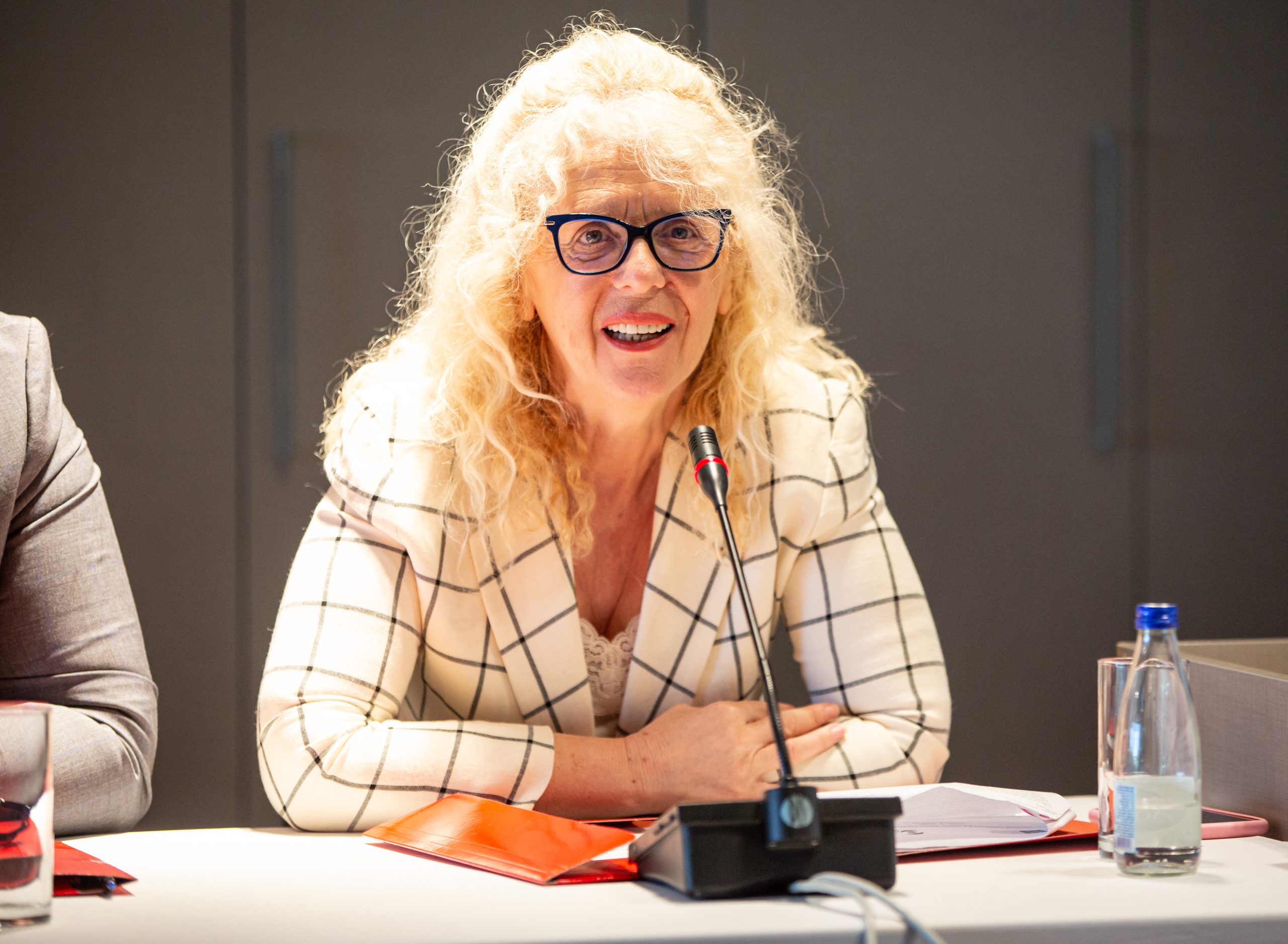
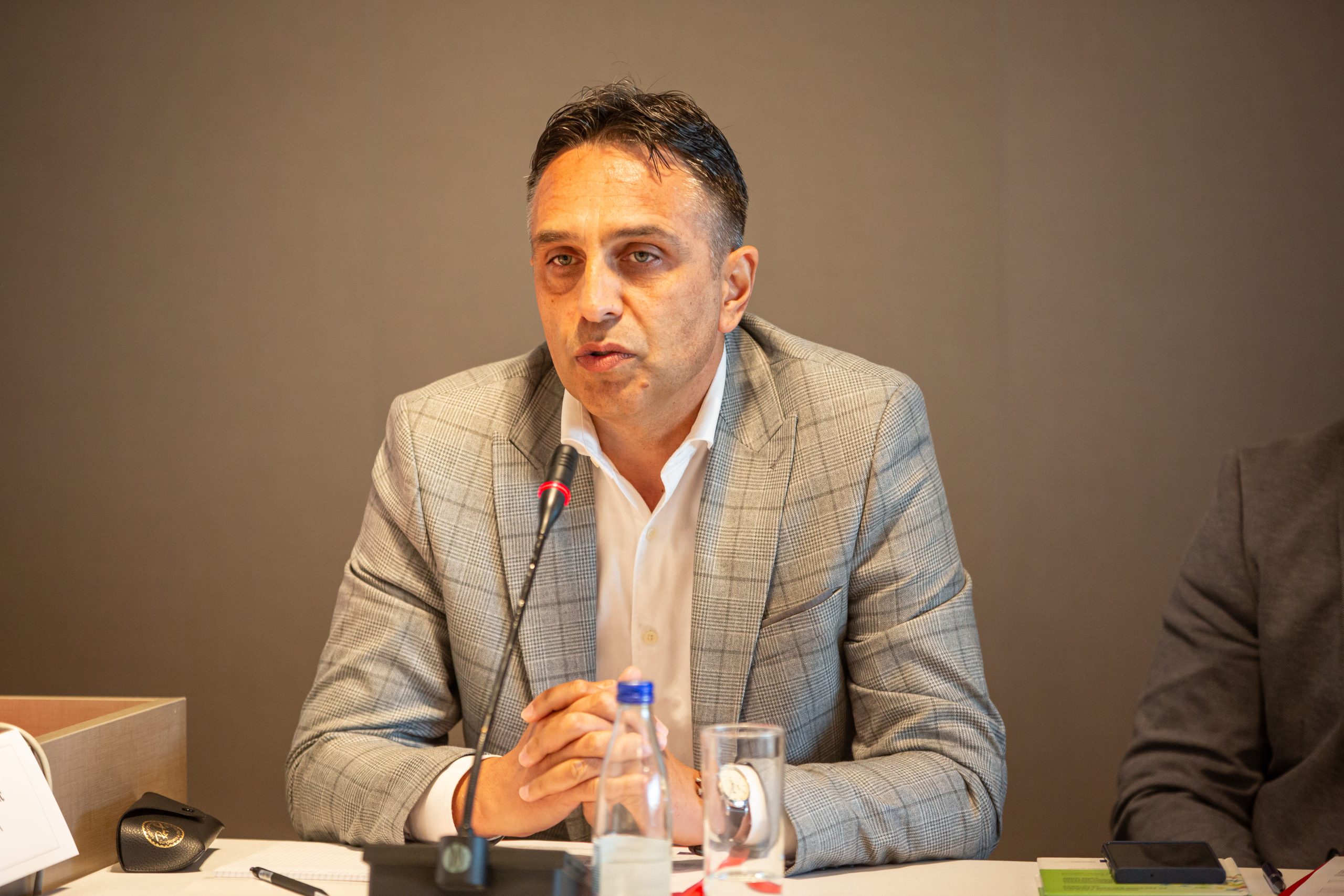
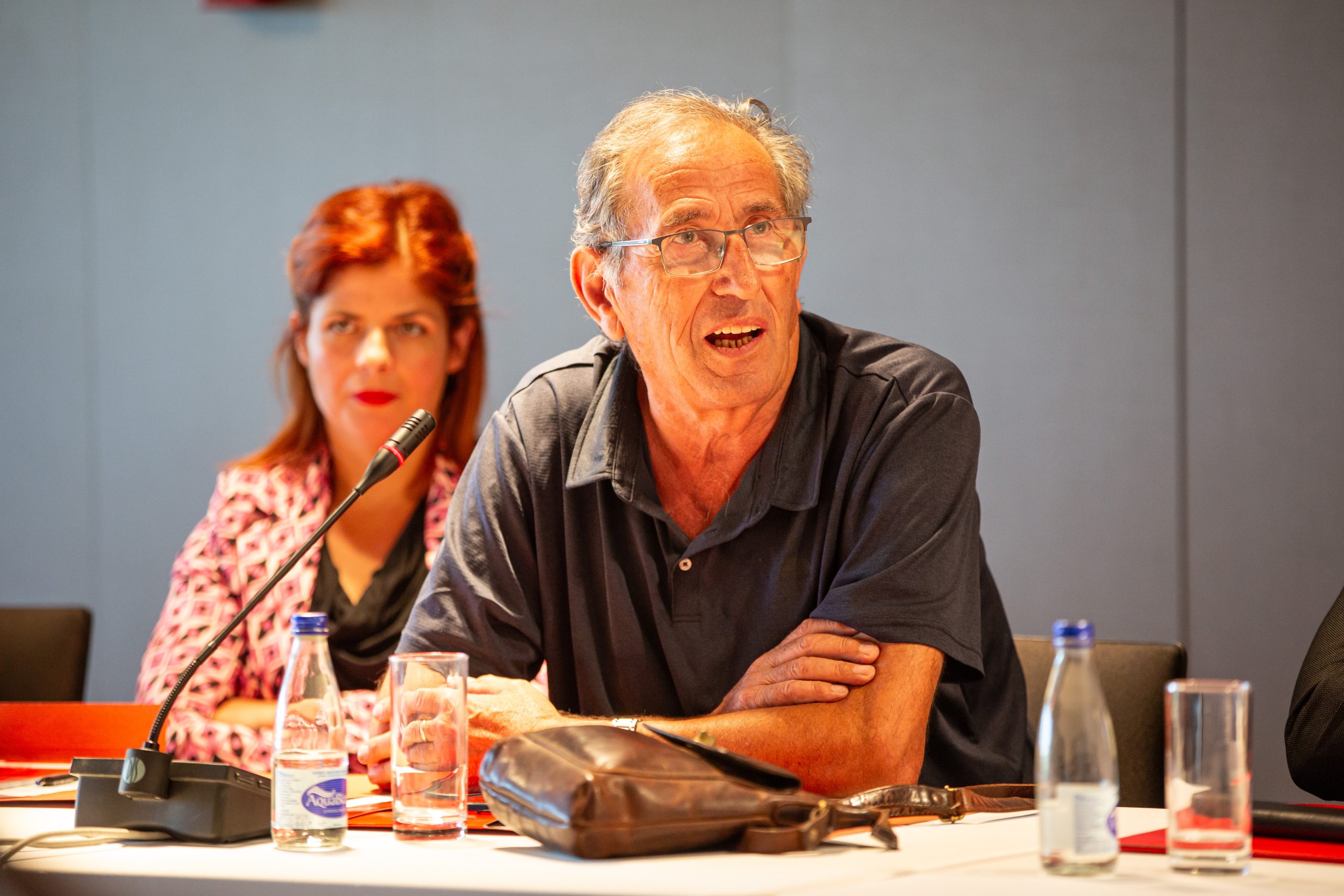
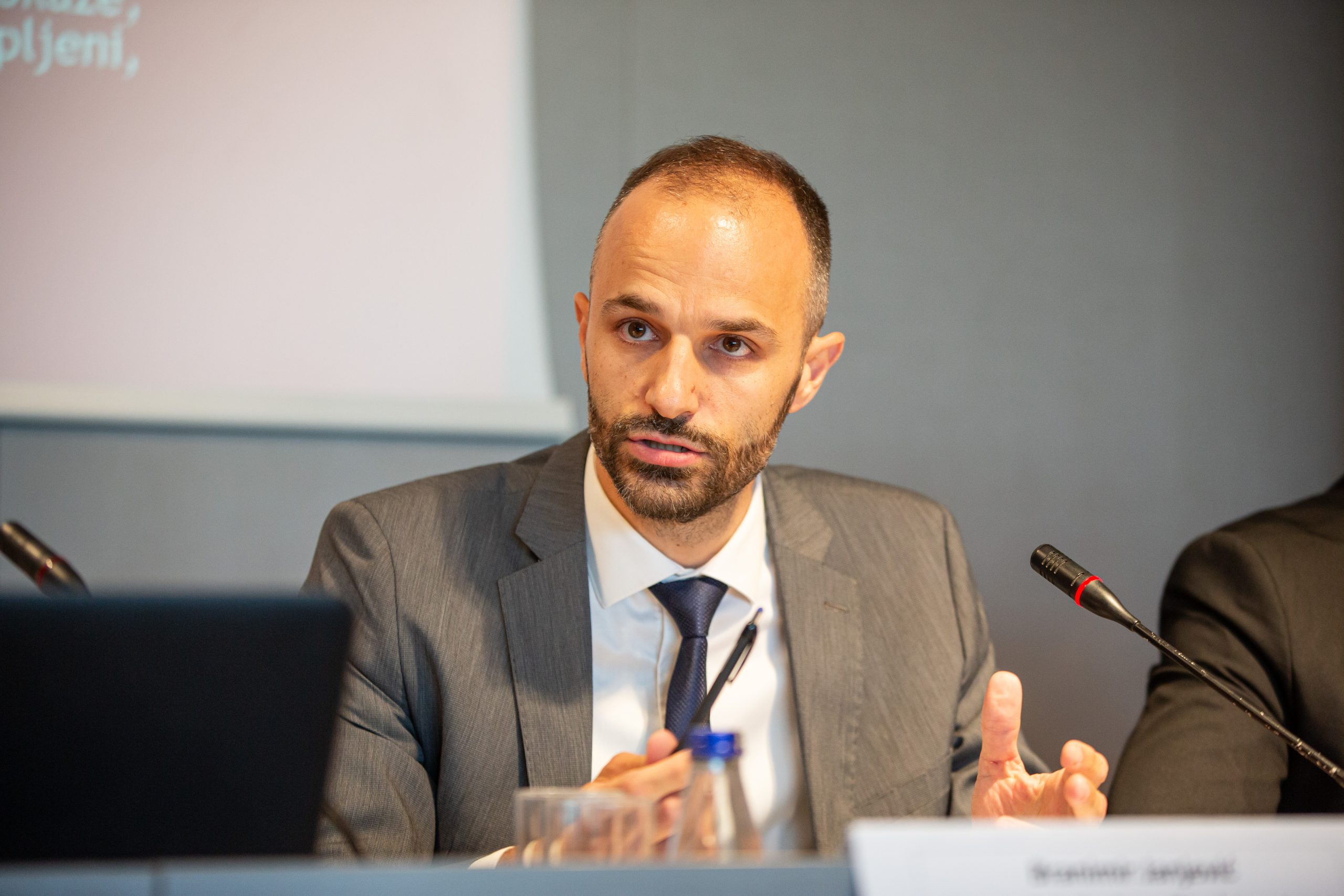
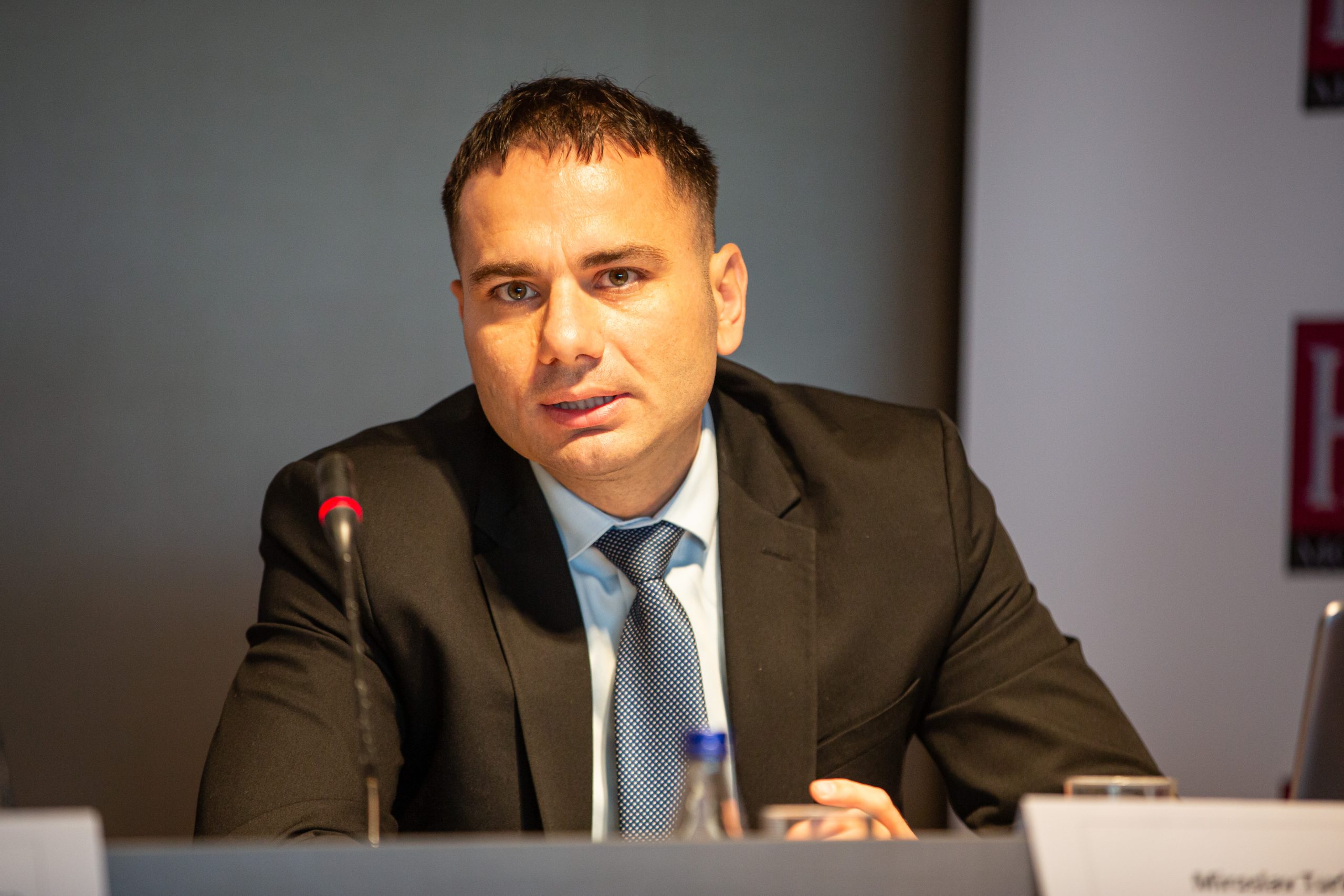

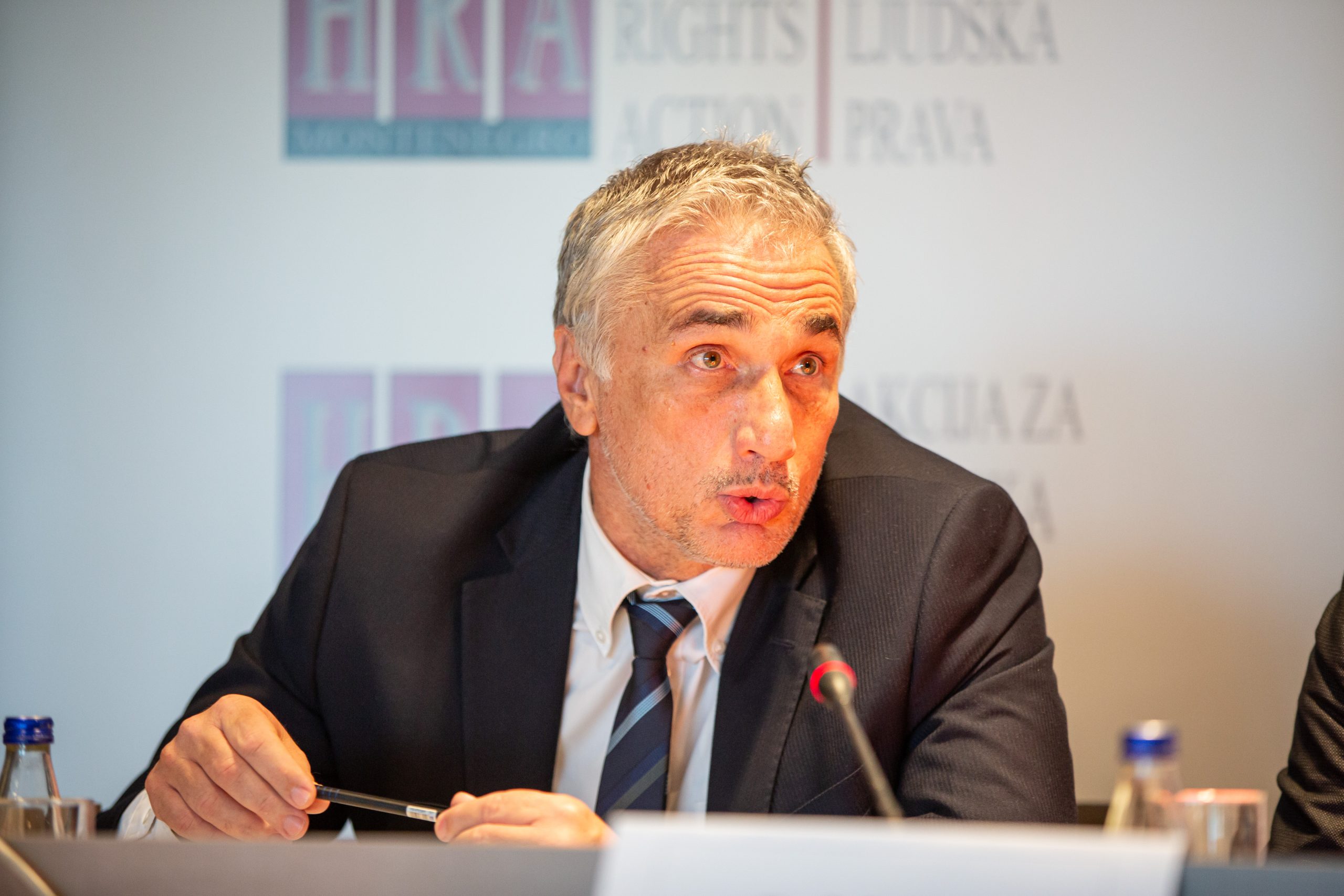





 English
English